Table of contents
When Your Mini Split Becomes a Water Feature
Mini split leaking water is one of the most common HVAC issues homeowners face, but the good news is that most causes are fixable with the right approach.
Quick troubleshooting checklist for a leaking mini split:
- Check the condensate drain line - Look for clogs or blockages (most common cause)
- Inspect air filters - Clean or replace dirty filters that restrict airflow
- Look for frozen coils - Turn off unit and let ice melt if coils are frozen
- Examine the drain pan - Check for cracks or damage underneath the unit
- Verify proper installation - Ensure unit is level and tilted toward drain
- Consider refrigerant levels - Low refrigerant can cause freezing and leaks
You're not alone if you've found water pooling under your mini split or staining your wall. This frustrating problem affects countless Birmingham homeowners, especially during our humid summers when these efficient systems work overtime to keep homes comfortable.
The reality is that mini splits are supposed to produce water - it's part of how they cool and dehumidify your home. But when that water ends up on your floor instead of draining outside, you've got a problem that needs immediate attention.
Most mini split water leaks stem from blocked drain lines, dirty filters, or frozen coils. While some fixes are simple DIY tasks, others require professional expertise to avoid damaging your system or voiding your warranty.
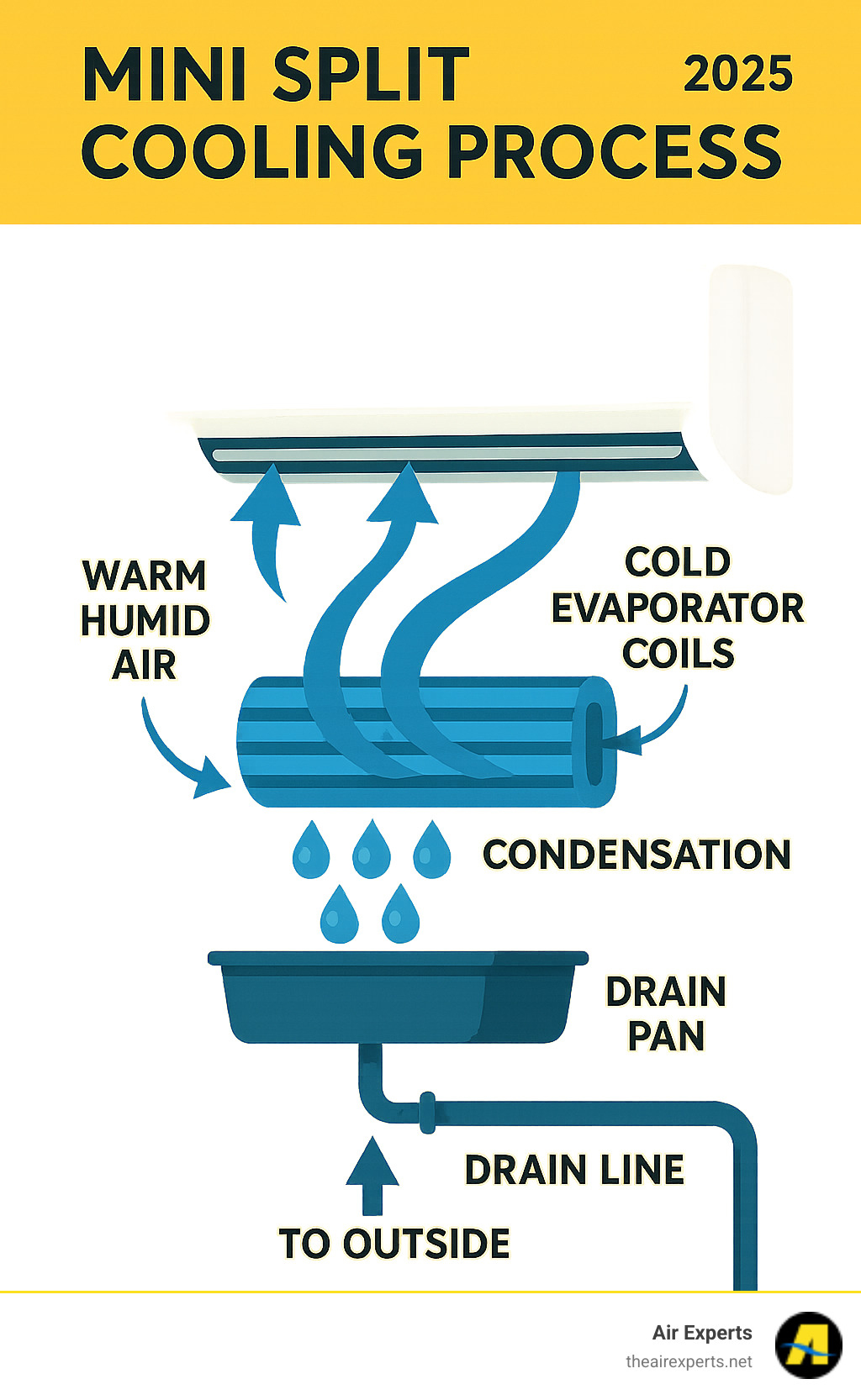
First, Why Do Mini Splits Produce Water?
Understanding why your mini split creates water is the first step to solving any mini split leaking water problem. Don't worry - water production is actually a good sign that your system is doing its job!
Your mini split has two main jobs during our hot Alabama summers: cooling your air and removing humidity. That second part - called dehumidification - is where all that water comes from.
Picture what happens when you take a cold drink outside on a humid day. Water droplets form on the outside of the glass, right? Your mini split works the same way, just on a much larger scale.
Here's what's happening inside your unit: Warm, muggy air gets pulled into the indoor unit and passes over the evaporator coil - a super-cold metal component that's chilled by refrigerant. When that humid air hits the cold coil surface, the moisture condenses into water droplets.
Those droplets don't just disappear. They drip down into a condensate drain pan tucked underneath the evaporator coil. From there, the water flows through a small drain line (usually a plastic tube or PVC pipe) that carries it safely outside your home.
This normal operation means your mini split should be quietly whisking away gallons of moisture from your indoor air every day. In fact, a properly working system can remove several gallons of water during peak summer days!
The problem starts when something interrupts this smooth drainage process. Maybe the drain line gets clogged, or the drain pan cracks, or ice forms on the coils. When that happens, water that should be flowing outside ends up pooling under your unit instead.
It's worth noting that while outdoor unit issues like AC Condenser Damage Affects Cooling can affect your system's overall performance, most water leak problems trace back to the indoor unit's condensation collection and drainage system.
The bottom line? Water production equals successful dehumidification. It's when that water goes rogue that you need to take action.
Common Culprits: Why Your Mini Split is Leaking Water
When your mini split leaking water turns your peaceful home into a drip-drop symphony, there's always a reason behind it. The good news? Most causes are surprisingly common and often fixable. Let's walk through the usual suspects we encounter in Birmingham homes.
Clogged Condensate Drain Line
Here's the biggest troublemaker, accounting for roughly 80% of the water leak calls we receive. Over time, the small condensate drain line can get clogged with dirt, dust, and algae. When the line is blocked, condensation has nowhere to go except back up into your unit and onto your floor. This blockage often happens gradually, so you might not notice it until water appears.
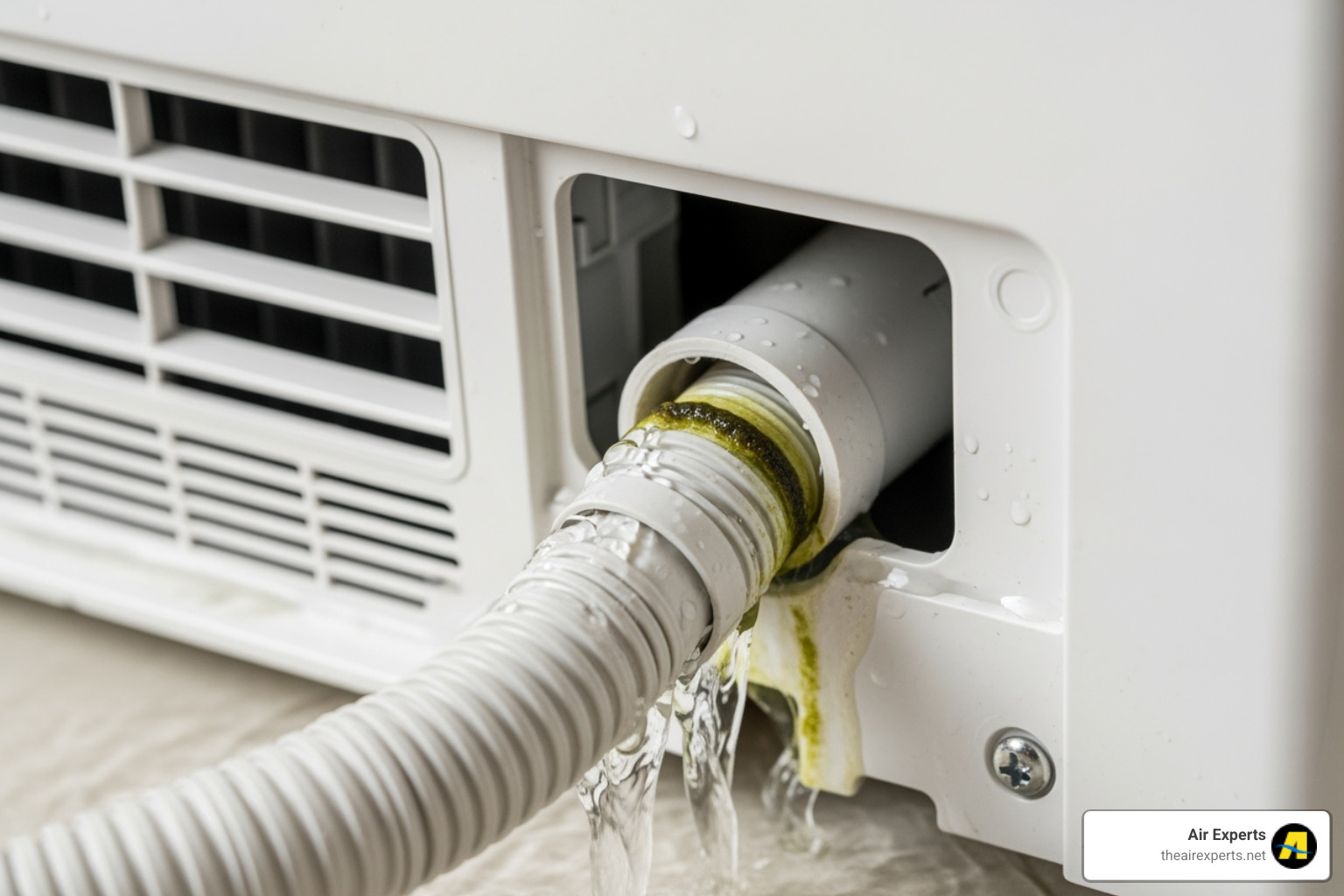
Dirty Air Filters
This is a common and completely preventable issue. When your air filter gets clogged with dust and debris, it restricts airflow. Your evaporator coil doesn't get the air it needs, so it gets much colder than it should, creating excess condensation that can overwhelm your drain system. Worse, restricted airflow can cause your coils to freeze solid. The simple truth is that Dirty AC Filters Impact Homes Cooling in many ways, and a simple filter replacement can save you from costly water damage repairs.
Frozen Evaporator Coils
When your evaporator coil turns into a block of ice and then thaws, the sudden flood of water can overwhelm your drain system. Coil freezing usually happens because of restricted airflow from dirty filters or low refrigerant levels. When the coil thaws, it's like dumping a bucket of water into your drain pan all at once, and the system can't keep up.
Damaged Drain Pan
Sometimes the problem isn't a clog, but the pan itself. These plastic or metal pans can crack, warp, or shift out of position over the years due to constant moisture and temperature changes. A cracked drain pan will leak water no matter how well everything else works.
Improper Installation
Not all installations are created equal. Your mini split needs to be perfectly level side-to-side but tilted slightly toward the drain to function correctly. If the unit is completely level or tilts away from the drain, water will pool inside instead of flowing out. We've seen units that cool perfectly but leak from day one due to incorrect installation.
Low Refrigerant Levels
Low refrigerant is usually caused by a leak. This makes your evaporator coil run much colder than normal, leading to ice formation. When that ice melts, you get the same flooding problem mentioned with frozen coils. You'll also notice decreased cooling performance and may hear hissing or bubbling sounds. If you suspect refrigerant issues, see our guide on Warning Signs AC Refrigerant is Leaking.
Why You Can't Just Ignore That Drip
A small leak can quickly become a major problem. Water damage spreads fast, turning a small stain into warped flooring and damaged drywall. Mold growth is a major concern in our humid climate. The American Lung Association warns that mold exposure can trigger serious respiratory problems. There are also electrical hazards, as water and electricity are a dangerous mix. Finally, a leaking unit is an inefficient unit, driving up your energy bills. Address that mini split leaking water sooner rather than later to protect your wallet, health, and home.
Your Step-by-Step Troubleshooting Guide
Ready to tackle your mini split leaking water? Many leaks are straightforward to diagnose and fix with basic tools. You'll need a screwdriver, a wet/dry vacuum, a bucket, towels, and a soft brush.
Safety first: Always turn off the power to your mini split at the breaker box before you begin.
Diagnosing a Mini Split Leaking Water from a Clogged Drain Line
Since clogged drain lines are the top cause of leaks, start there. First, find your drain line: a small hose or PVC pipe running from the indoor unit outside.
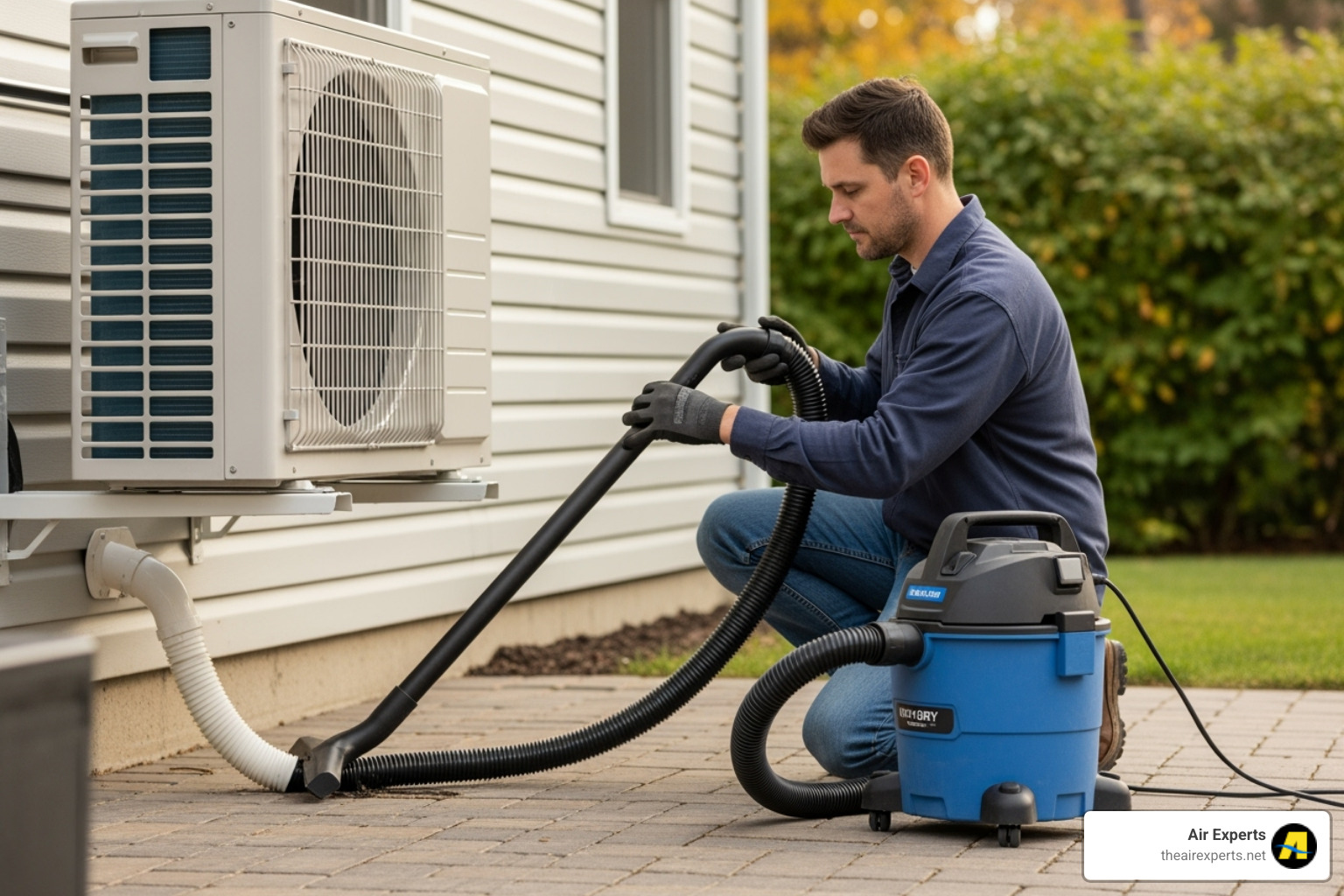
To clear it, the suction method works well: attach a wet/dry vacuum to the outdoor end of the line, create a tight seal, and run it for 2-3 minutes to pull out gunk.
For stubborn clogs, try flushing. If you can access the drain pan inside, pour a cup of distilled white vinegar into it. Let it sit for 30 minutes, then flush with clean water, being careful to avoid electrical parts.
To test your work, turn the unit back on. Water should flow freely from the outdoor drain line. If not, the issue might be related to installation, which our guide on Correct Drainage Issues After AC Installation covers.
Checking Filters and Coils
To clean your air filter, open the indoor unit's front panel, slide out the filters, and vacuum them. For a deeper clean, wash them gently with mild soap and lukewarm water, then rinse. It's crucial to let them air dry completely before putting them back.
While the filters are out, inspect the evaporator coils. They should be clean; if they're dusty, use a soft brush or vacuum attachment to gently clean them. Heavy grime on coils needs professional attention. Proper airflow is key, which is why Fixing Ductless AC System Airflow Problems is so important.
Addressing a Mini Split Leaking Water Due to Frozen Coils
If you find ice on your evaporator coils, turn the unit off completely. Allow the ice to melt naturally, which can take several hours, using towels to catch the water.
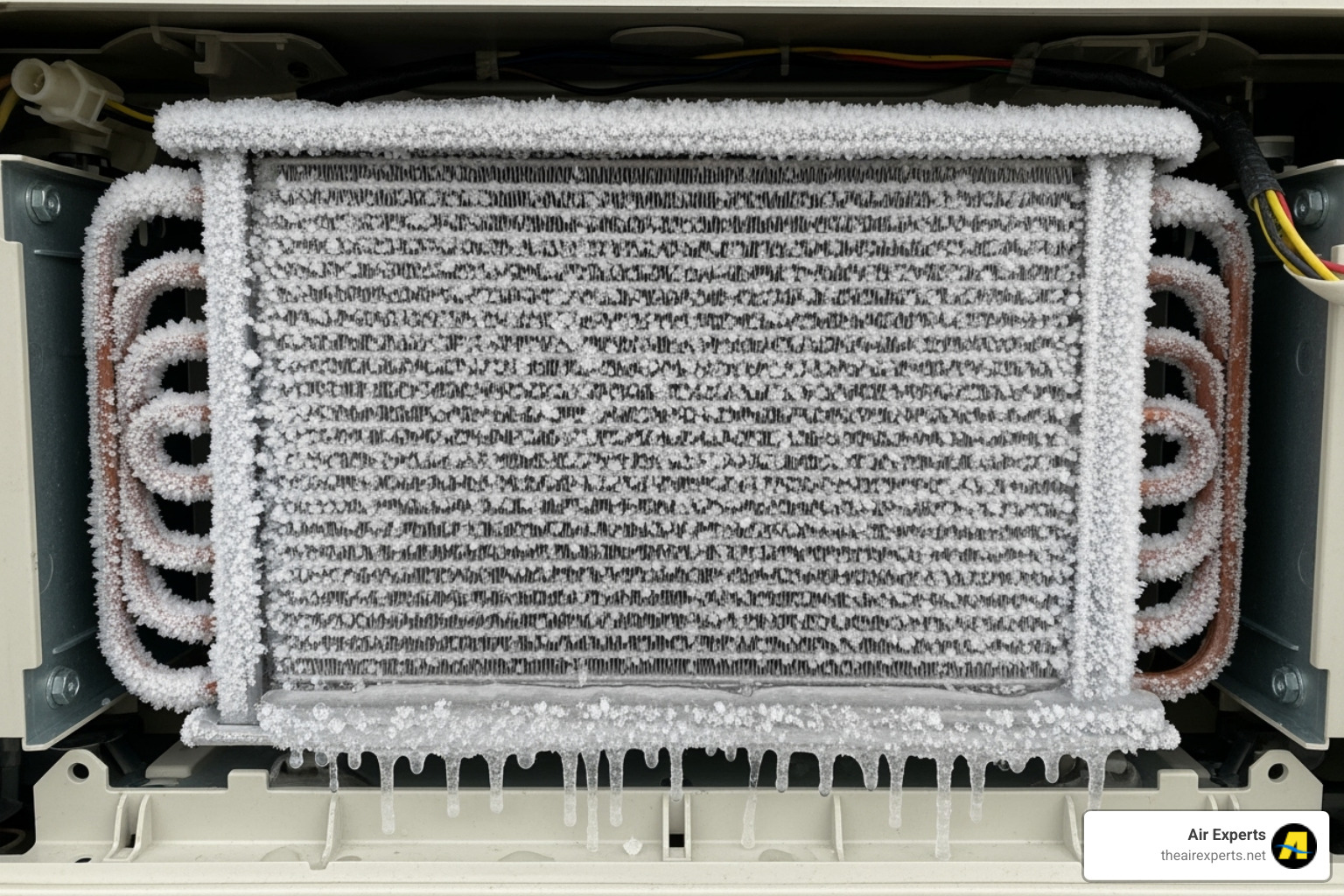
You can run the fan-only mode to speed it up, but natural thawing is safest.
Once thawed, identify why the coils froze. The usual culprits are restricted airflow from dirty filters or blocked vents, or low refrigerant levels, which indicate a leak and require a professional. Addressing the root cause is key, as our guide Why Ductless AC is Freezing Up explains.
When DIY Isn't Enough: Calling a Professional
Sometimes, despite your best troubleshooting efforts, that stubborn mini split leaking water just won't quit. Some problems simply require professional expertise and specialized tools.
Can I Use My Mini Split While It Is Leaking Water?
We get this question a lot, and our answer is always no. We know it's tempting during an Alabama summer, but running a leaking unit risks spreading water damage to your floors and walls, creating electrical hazards, and promoting mold growth, which is a health concern. Your safety and home are worth more than a few uncomfortable hours. Turn the unit off and call a professional.
Water Leak vs. Refrigerant Leak
Understanding the difference between water and refrigerant leaks is crucial.
| Feature | Water Leak | Refrigerant Leak |
|---|---|---|
| Appearance | Clear, odorless water; can be a steady drip or puddle. | Often clear, but may leave oily residue; can cause ice formation on coils or lines; sometimes visible bubbles. |
| Smell | Odorless, or may have a musty smell if mold is present. | Can have a chemical, sweet, or sometimes unpleasant odor (like gasoline or burning). |
| System Behavior | Unit may still cool, but inefficiently; may hear dripping sounds. | Decreased cooling performance; unit struggles to cool; coils may freeze; hissing or bubbling sounds. |
| Consequences | Water damage to property, mold growth, electrical short risk. | Environmental harm, health hazards (nausea, dizziness, respiratory issues), severe system damage. |
| DIY Fix? | Often, for clogged drain lines or dirty filters. | Never. Requires professional diagnosis, repair, and recharging. |
Refrigerant leaks are serious business. The Environmental Protection Agency (EPA) warns that refrigerants can be hazardous to your health. If you smell a chemical odor, notice an oily residue, or hear hissing, turn off your system immediately, open windows, and call a professional.
Complex Issues That Need Professional Attention
Some problems are beyond DIY repair. Cracked drain pans often require disassembling the indoor unit, which can void your warranty if done incorrectly. Installation problems, like an improper tilt, require repositioning the unit. Persistent leaks after troubleshooting usually indicate deeper issues like a faulty pump or sensor damage that require diagnostic equipment.
Professionals have the tools and experience to fix these issues quickly and safely, and their work is usually warrantied. For more information, check our guide on Mini Split Repairs: What You Need to Know. When in doubt, it's safer to call for help.
Preventing Future Puddles: Mini Split Maintenance
Think of your mini split like your car - a little regular TLC goes a long way toward preventing those frustrating mini split leaking water situations. The good news is that most water leak prevention is surprisingly simple and doesn't require any special skills.
Regular filter cleaning is hands down your best defense against water leaks. It's amazing how many problems stem from this one simple task that takes just a few minutes every month or two. When filters get clogged with dust and debris, your system works harder, coils get colder than they should, and before you know it, you've got excess condensation and potential freezing issues. Clean those filters every 1-3 months - more often if you have furry family members or live on a dusty road.
Here's where we get a bit biased, but annual professional tune-ups are absolutely worth every penny. During these visits, our technicians become detective-mechanics, inspecting and cleaning your evaporator and condenser coils, checking and clearing that all-important condensate drain line, and making sure your drain pan isn't cracked or sitting crooked. We'll also verify your refrigerant levels, ensure the unit is properly leveled, and test the whole system's performance. It's like a physical exam for your mini split, and we often catch small issues before they turn into big, wet messes. Our AC Maintenance Birmingham AL service is designed exactly for this kind of proactive care.
Don't forget about your outdoor unit either. While it's not directly causing indoor leaks, keeping it free from leaves, grass clippings, and that mysterious outdoor debris that seems to accumulate everywhere helps your entire system run efficiently. A struggling outdoor unit can affect the whole cooling process.
Checking your drain line periodically is easier than you might think. Every few months during cooling season, take a quick peek at where that little drain line exits your house. When your system is running, you should see a steady drip of water - that's exactly what you want! No water flowing could mean trouble is brewing inside.
The secret to preventing problems is simply paying attention to your system. Strange sounds, weird smells, or changes in how well it cools your home are all early warning signs. Address these little quirks promptly, and you'll save yourself from dealing with water puddles and emergency repair calls later.
With just a bit of regular attention, your mini split will keep you cool and dry for years to come.
Frequently Asked Questions about Mini Split Leaks
We get lots of calls from frustrated homeowners dealing with mini split leaking water, and we understand the concern. Here are answers to the most frequent questions we hear:
What are the most common reasons a mini split system leaks water?
The top reasons are a clogged condensate drain line from dust and algae buildup, dirty air filters restricting airflow, and frozen evaporator coils (often caused by dirty filters or low refrigerant). Improper installation without the correct slope for drainage is another common cause. Less frequently, a cracked drain pan or low refrigerant levels can be the culprit.
Can I use my mini split system while it is leaking water?
No. Continuing to use a leaking mini split risks significant water damage to your home, electrical hazards like shorts or fire, and will likely worsen the underlying problem. For your safety, turn the unit off at the breaker and call for repairs.
What is the difference between a water leak and a refrigerant leak?
This is an important distinction. A water leak is condensation that isn't draining correctly. You'll see clear, odorless water, and the cause is often a simple DIY fix. A refrigerant leak involves the chemical coolant. Signs include a chemical smell, poor cooling, and ice on the coils. Refrigerant leaks are hazardous and always require a professional.
If you suspect a refrigerant leak, turn off the system and call for service immediately. Poor system performance can also be related to other issues, so it's good to know the Signs Your Air Vents Need Cleaning apply to your situation. When in doubt, it's better to be safe and get a professional opinion!
Honest, Quality Mini Split Repair in Birmingham, AL
A mini split leaking water doesn't have to turn your day upside down. Throughout this guide, we've walked through the most common culprits - from stubborn clogged drain lines to dirty filters that restrict airflow. Many of these issues are totally manageable with a little DIY spirit and the right approach.
The key takeaway? Prompt action matters. Whether you're clearing a drain line with your wet/dry vacuum or simply cleaning those filters you've been meaning to tackle, addressing the problem quickly prevents minor leaks from becoming major headaches.
But let's be honest - sometimes you need backup. When you're dealing with refrigerant leaks, cracked drain pans, or installation problems, it's time to call in professionals who know these systems inside and out. There's no shame in recognizing when a problem is beyond your comfort zone. In fact, it's smart.
That's exactly why The Air Experts exists. We serve the Greater Birmingham, AL area with one simple promise: "No Upselling. No catch. Just Honest, Quality Service." We believe in transparent pricing and getting straight to the point - no mysterious fees or pressure tactics.
Our experienced HVAC technicians have seen every type of mini split leak imaginable. We'll diagnose the real problem, explain what's happening in plain English, and fix it right the first time. Your comfort is our priority, not our bottom line.
If you're unsure about what's causing your leak, or if your DIY efforts haven't solved the problem, don't let it drag on. Water damage and mold growth aren't worth the risk of waiting.
Schedule your mini split repair in Birmingham, AL today! We're here to help get your system back to doing what it does best - keeping you comfortable without the unwanted water feature.
.svg)
.svg)
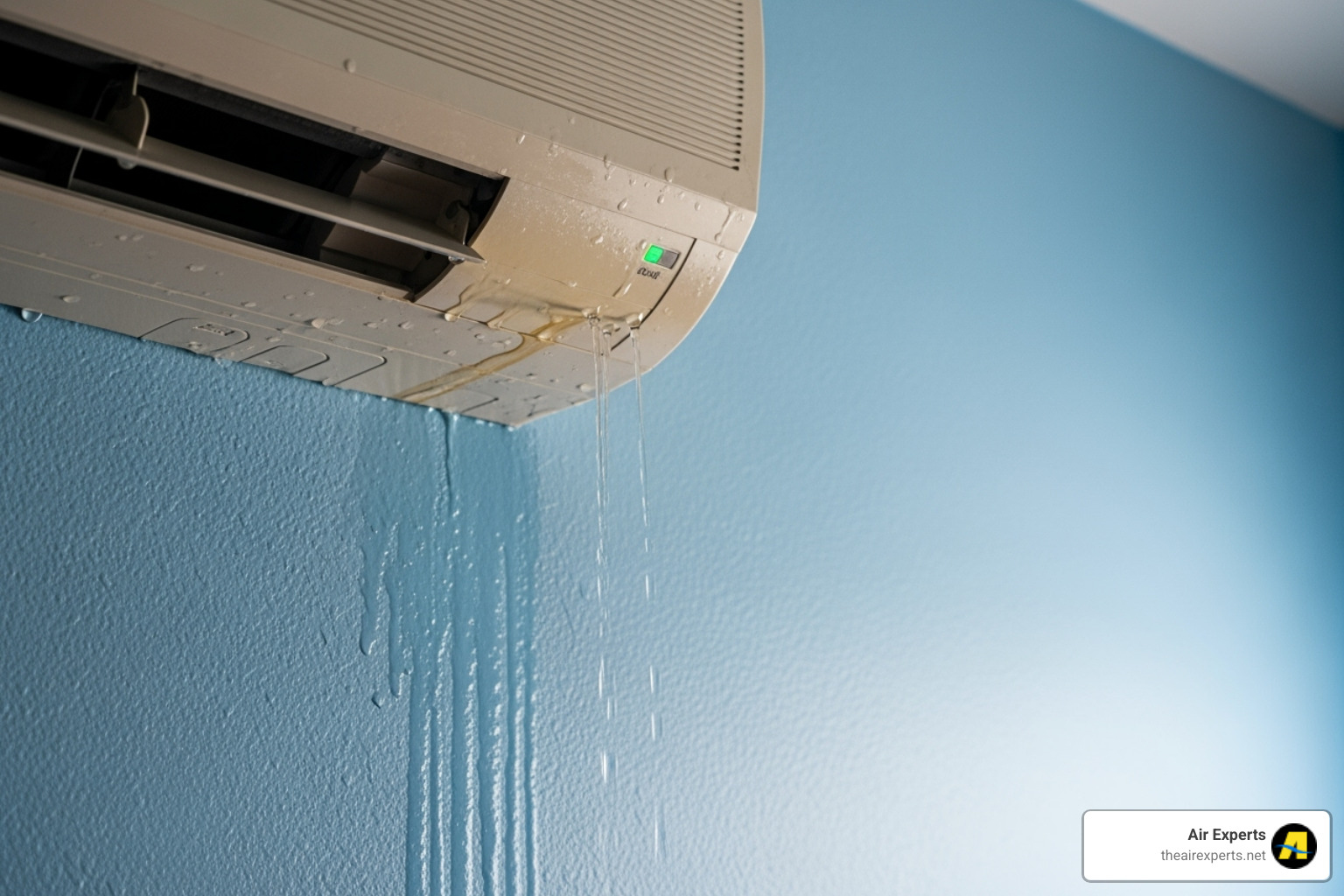


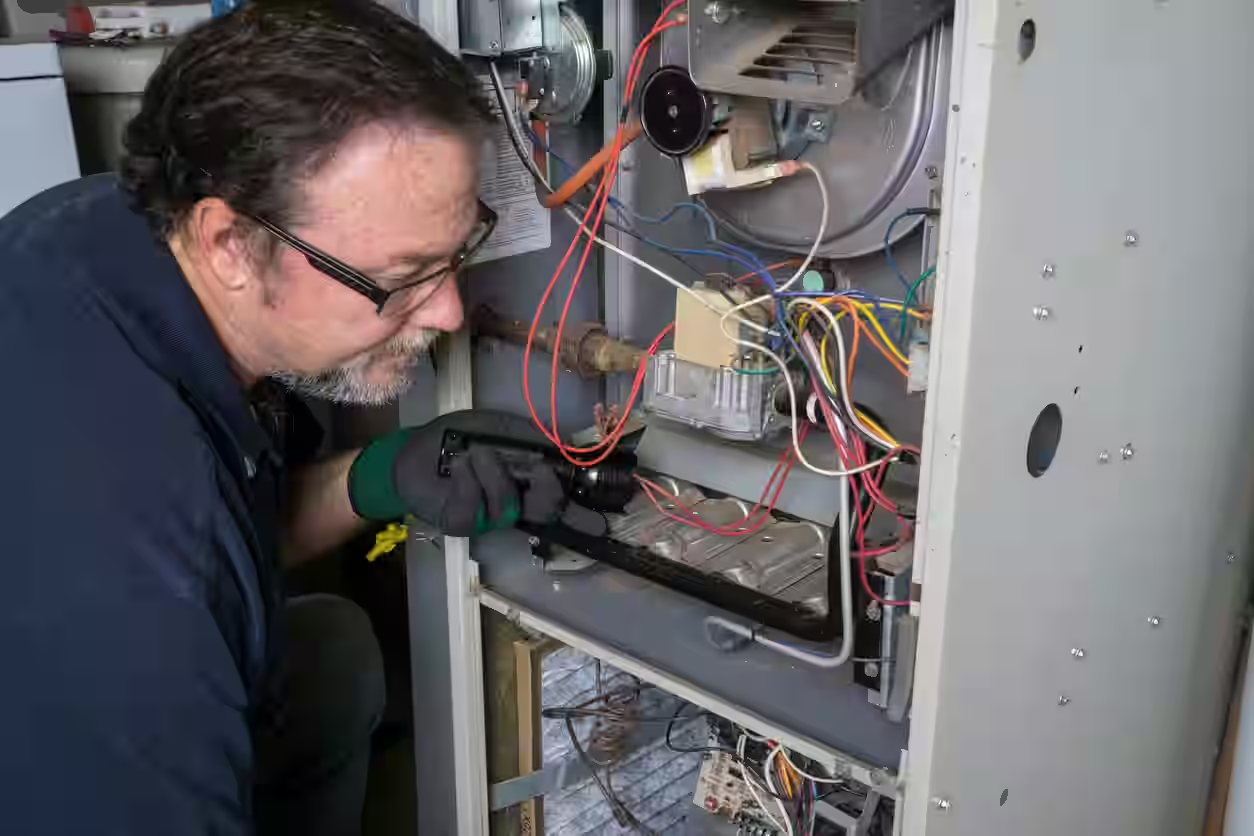

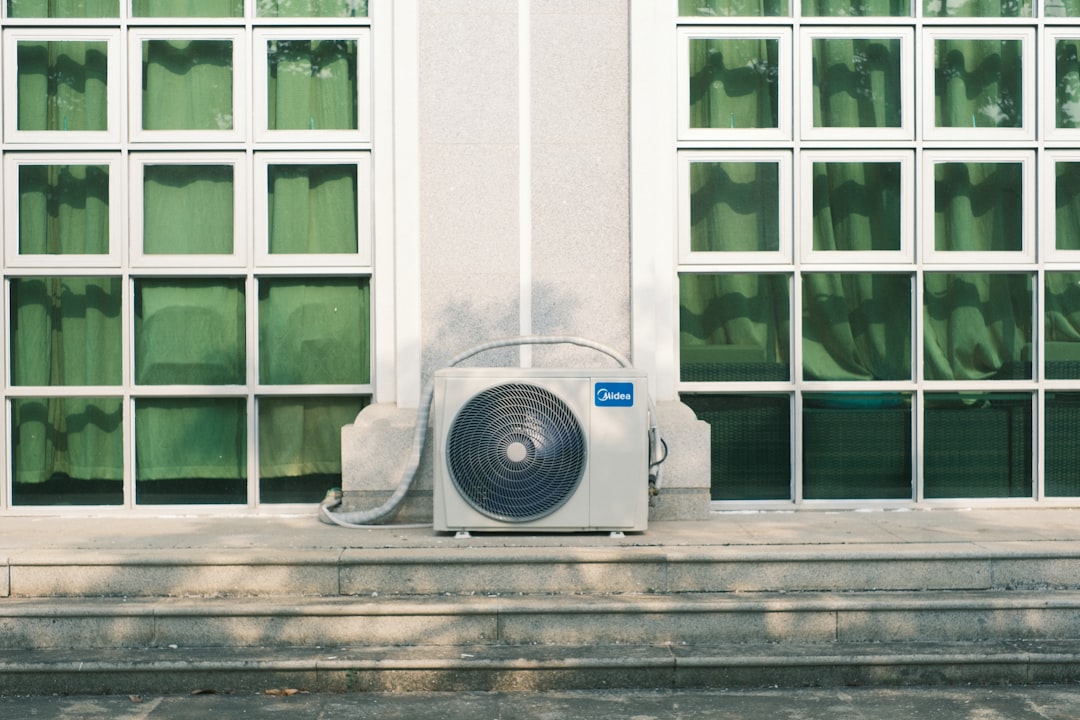

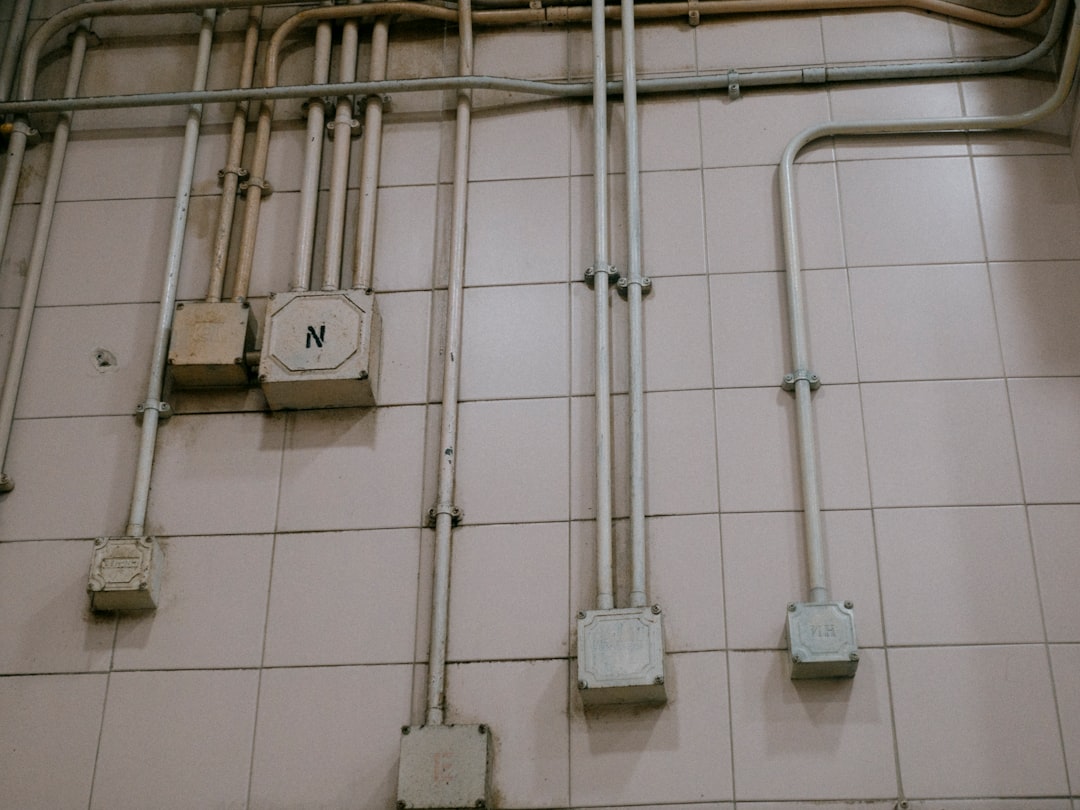


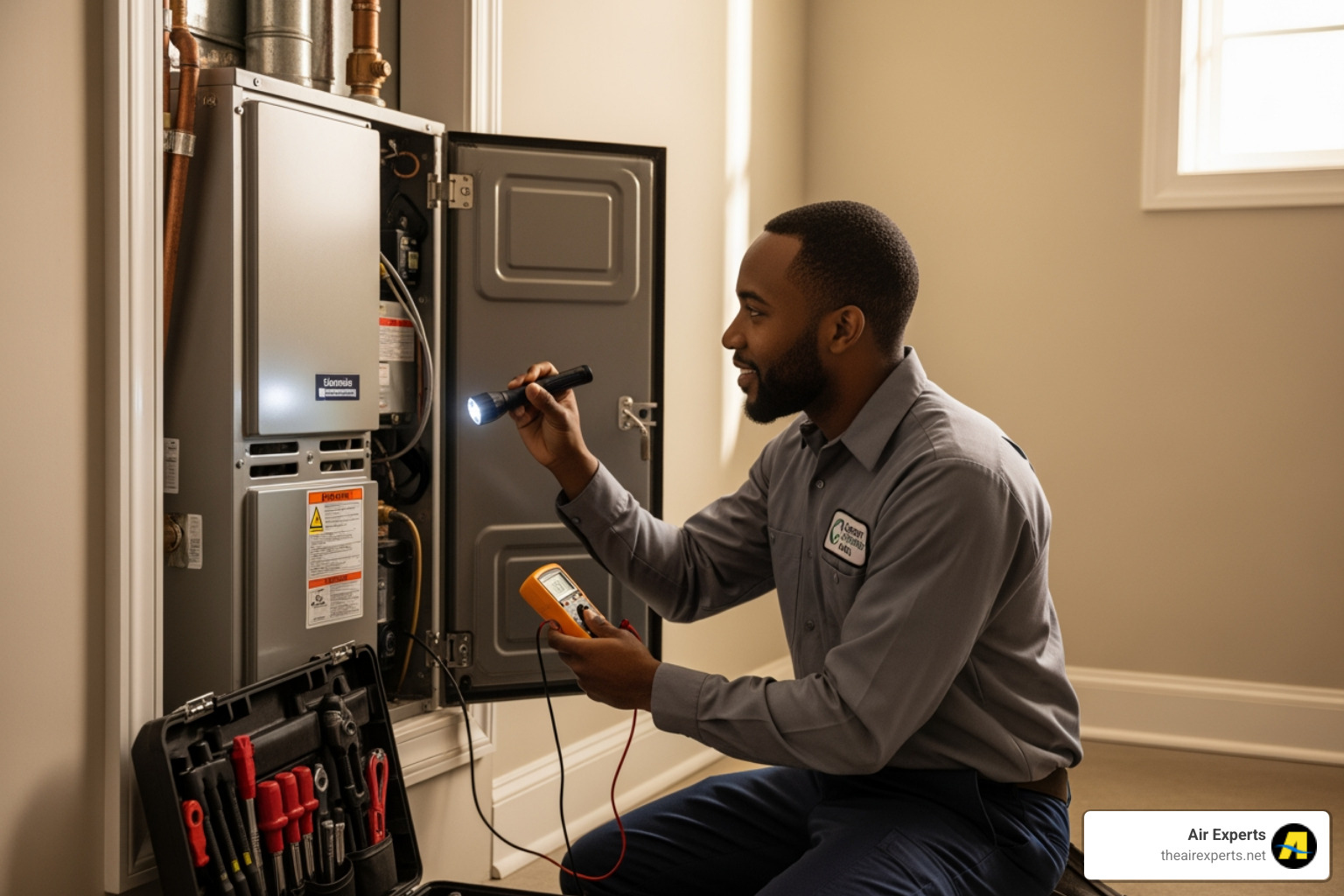
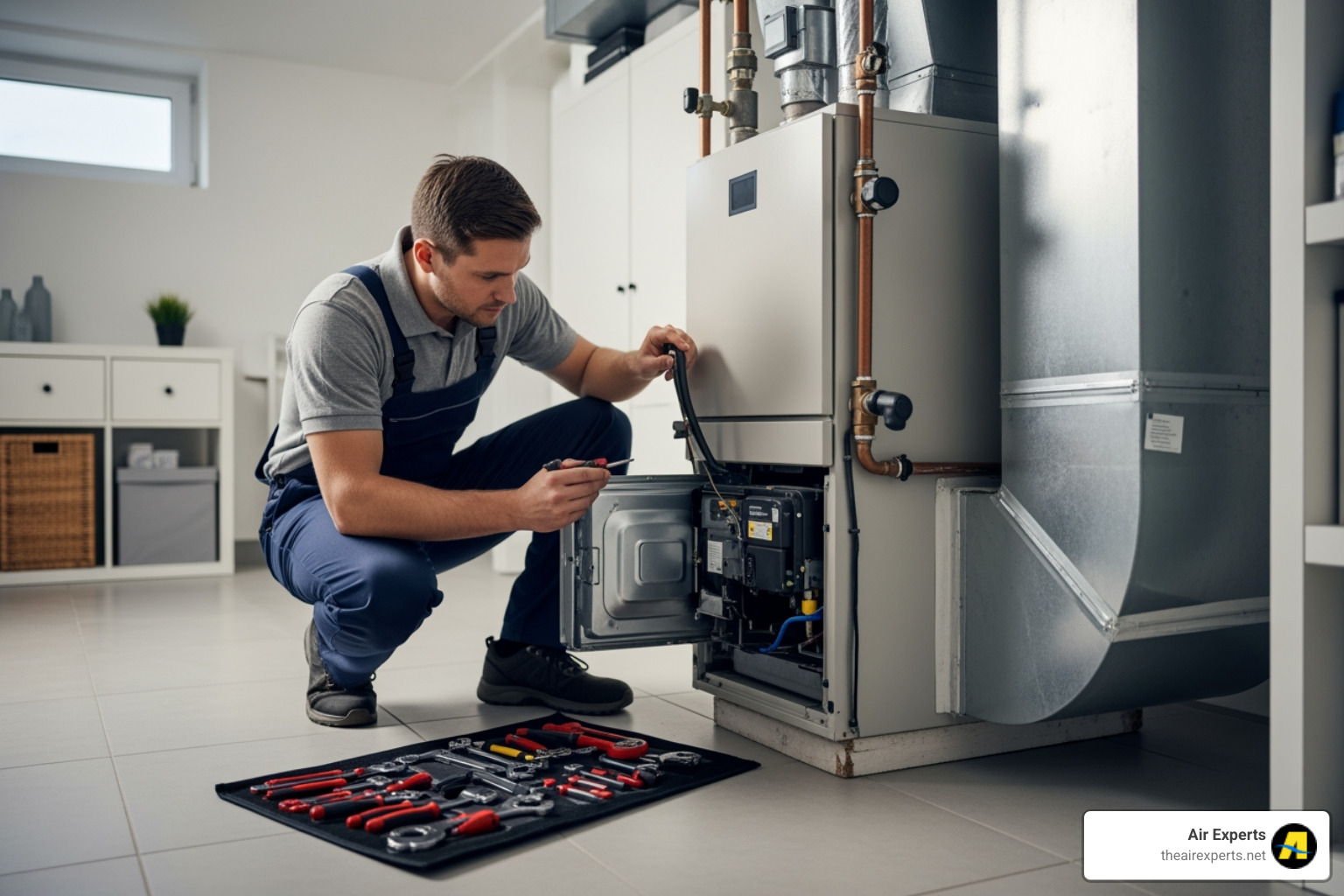
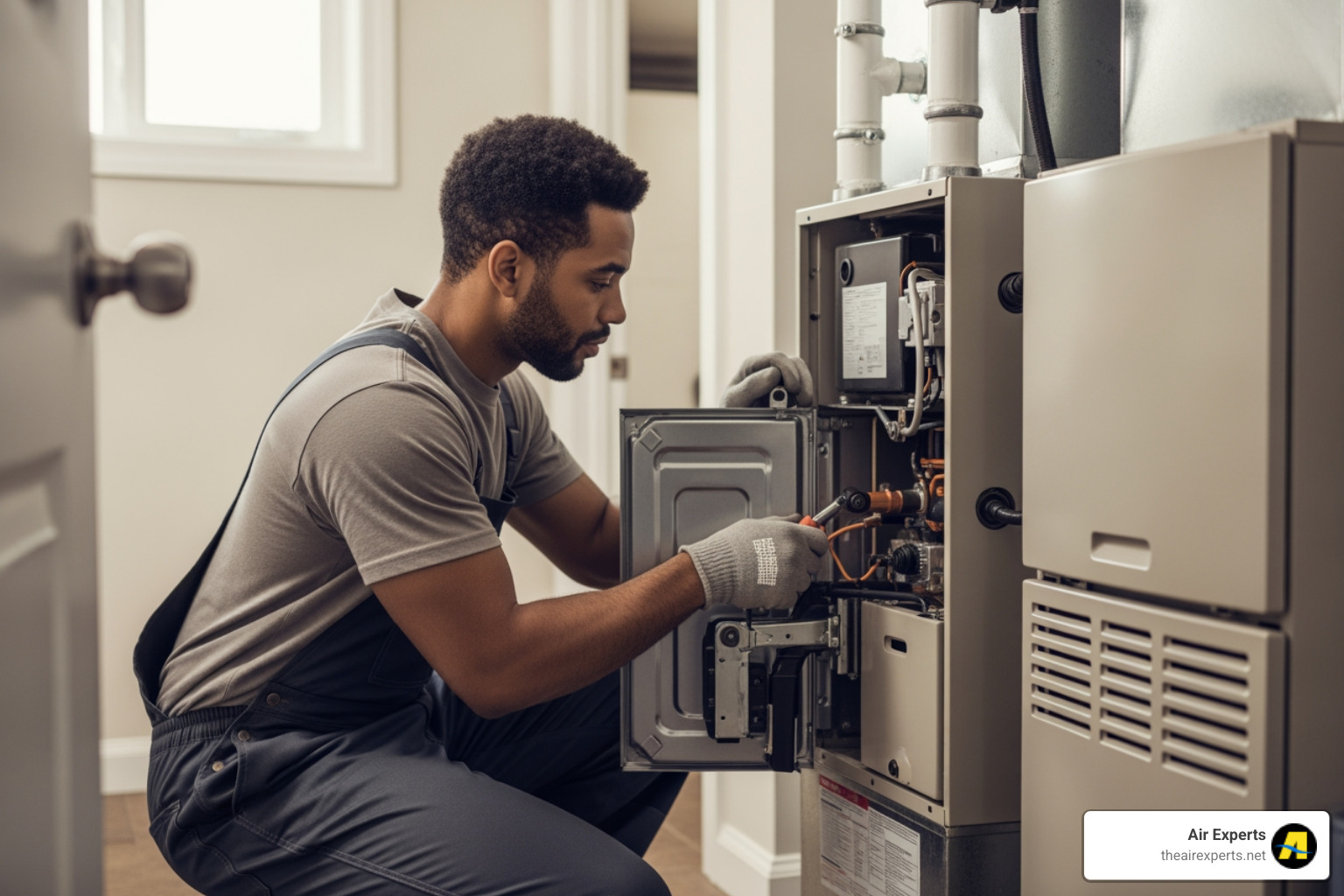


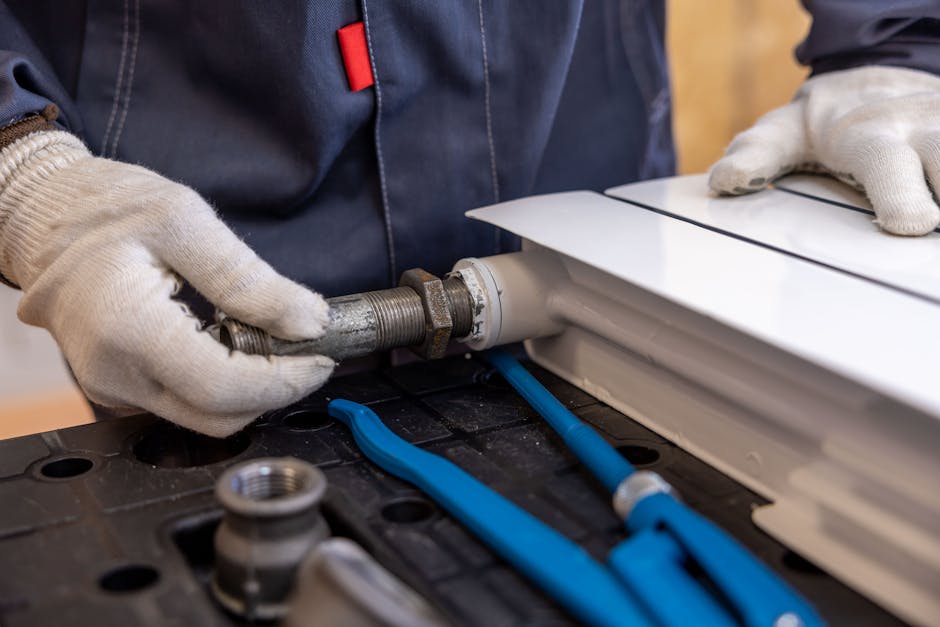







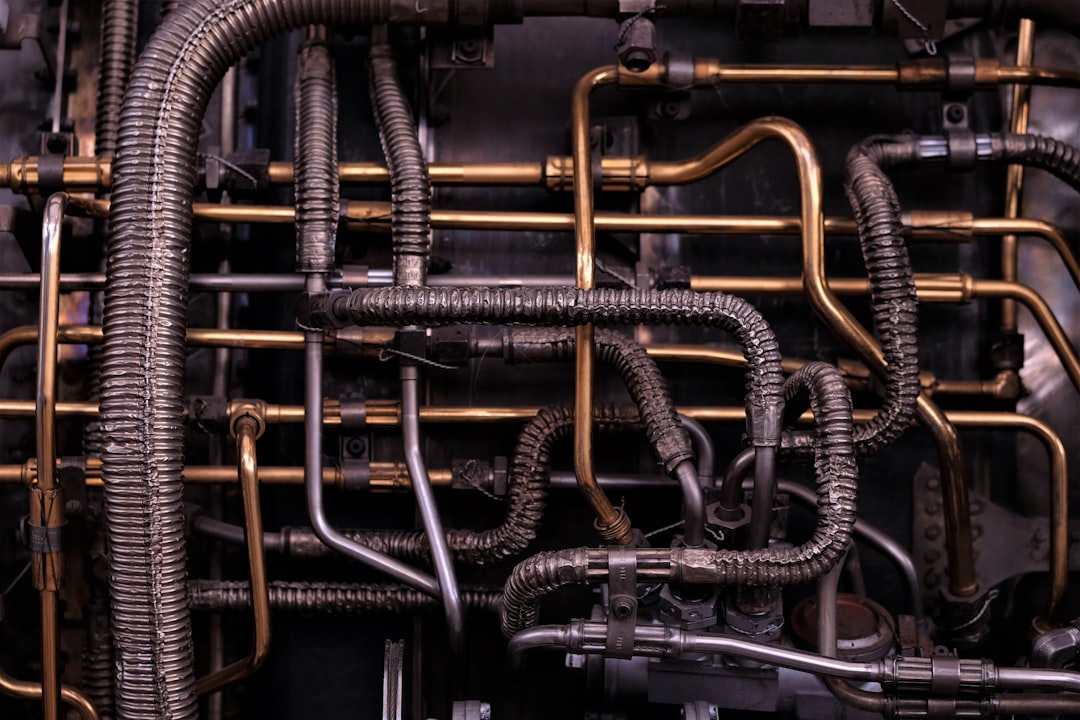
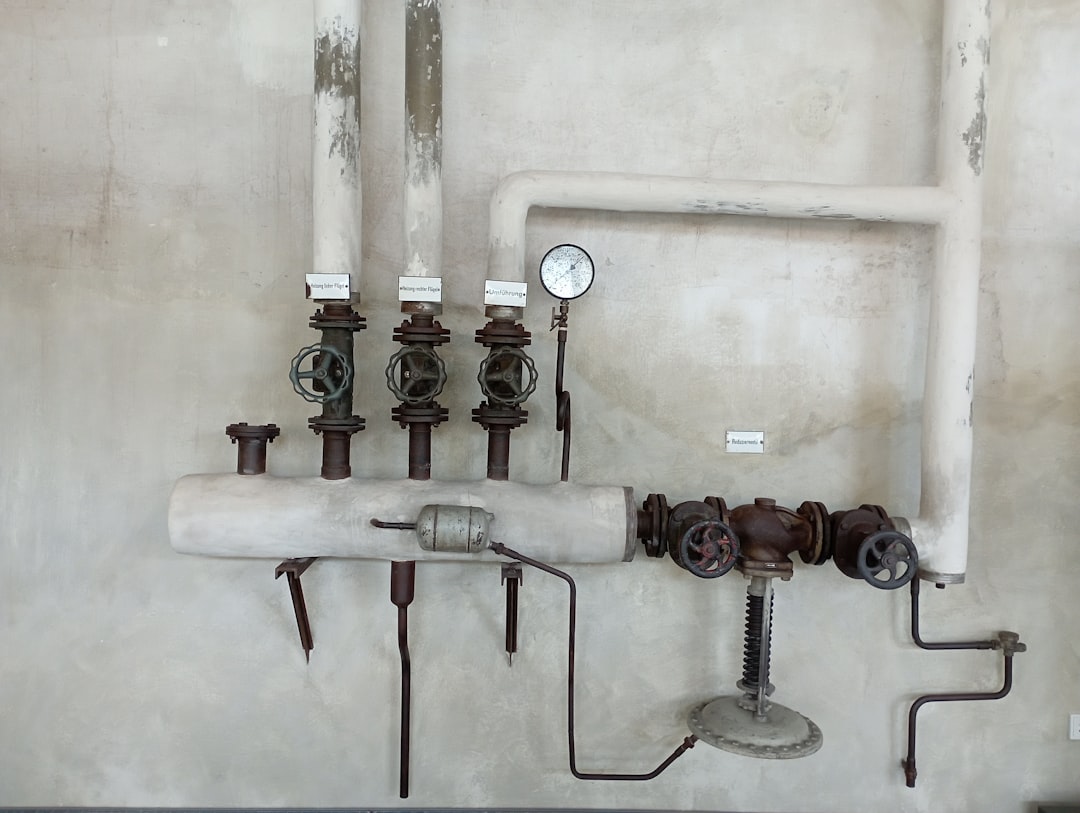







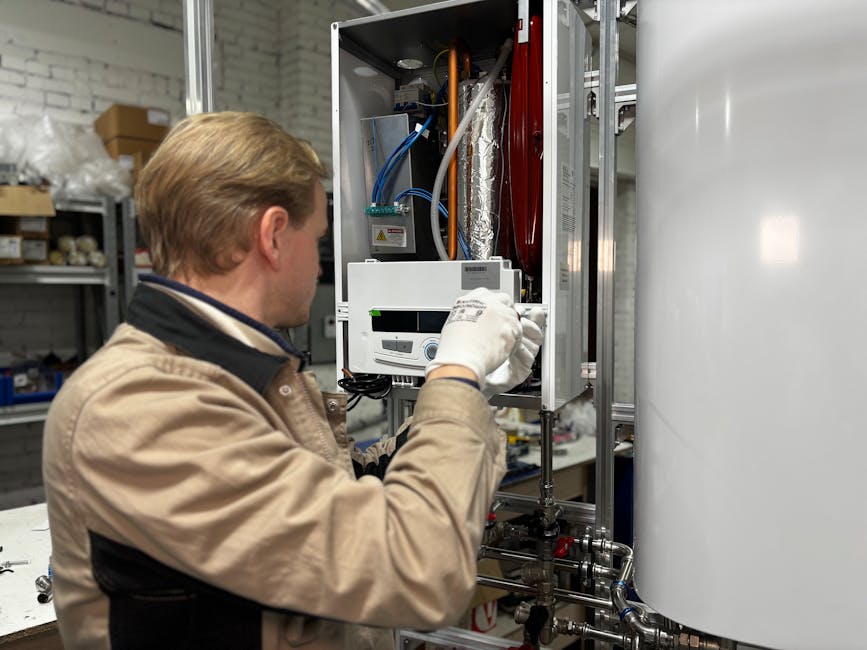
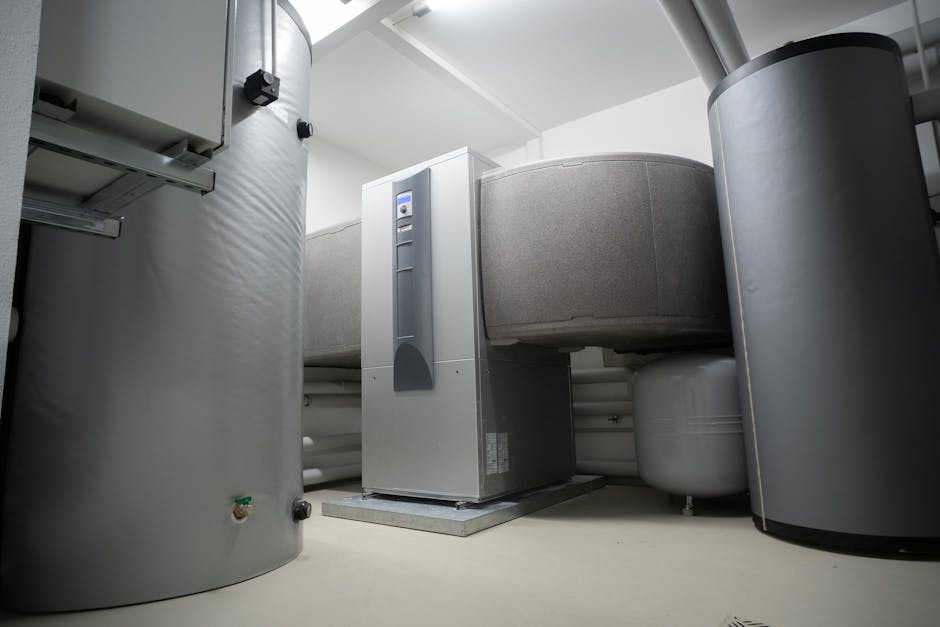
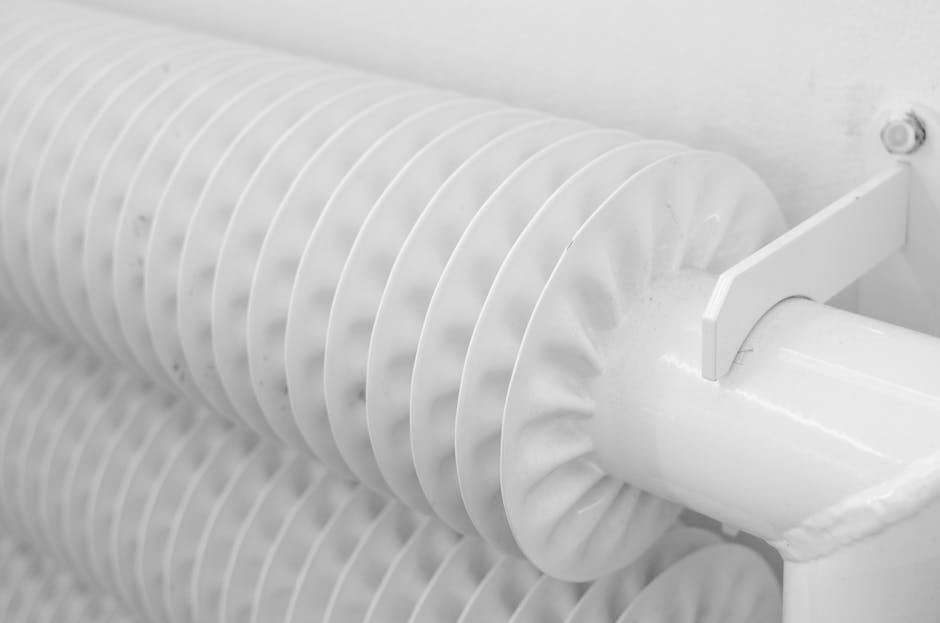
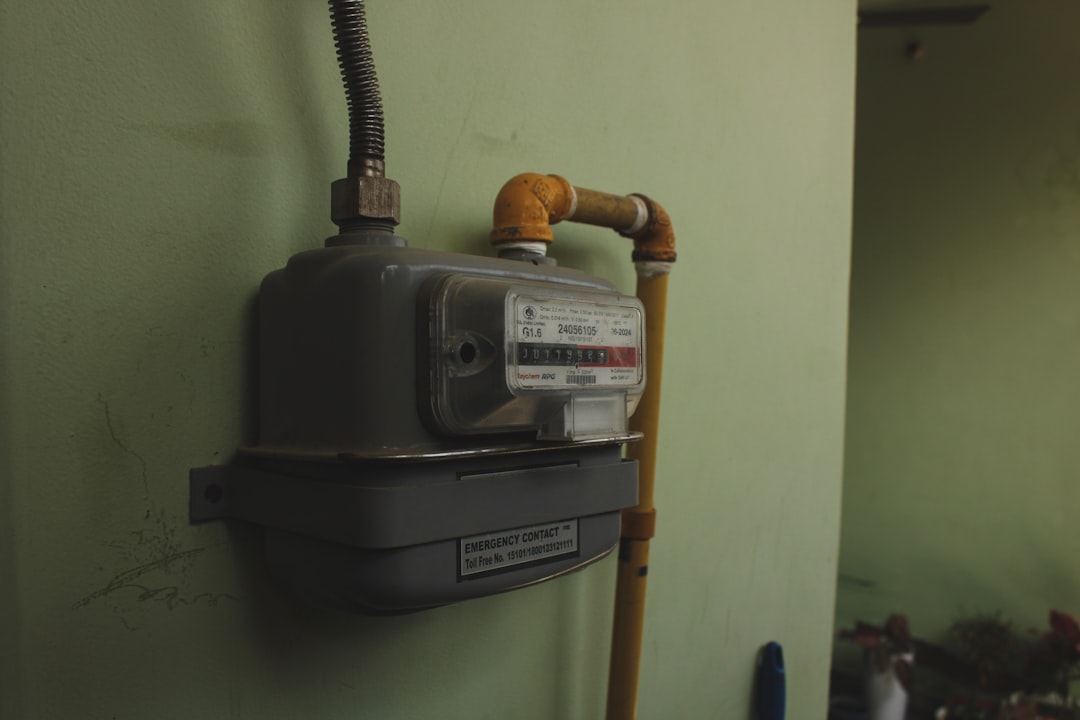
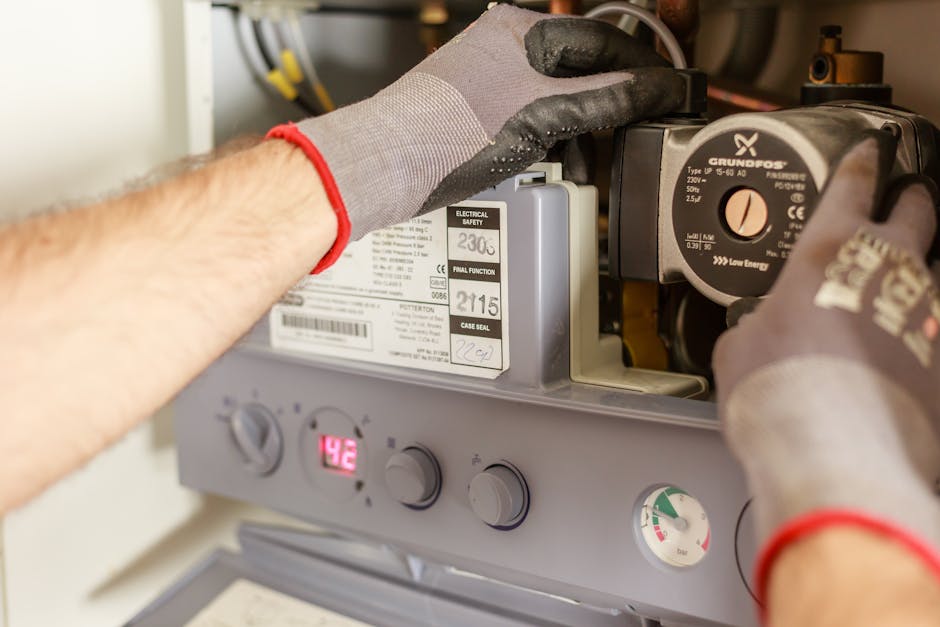
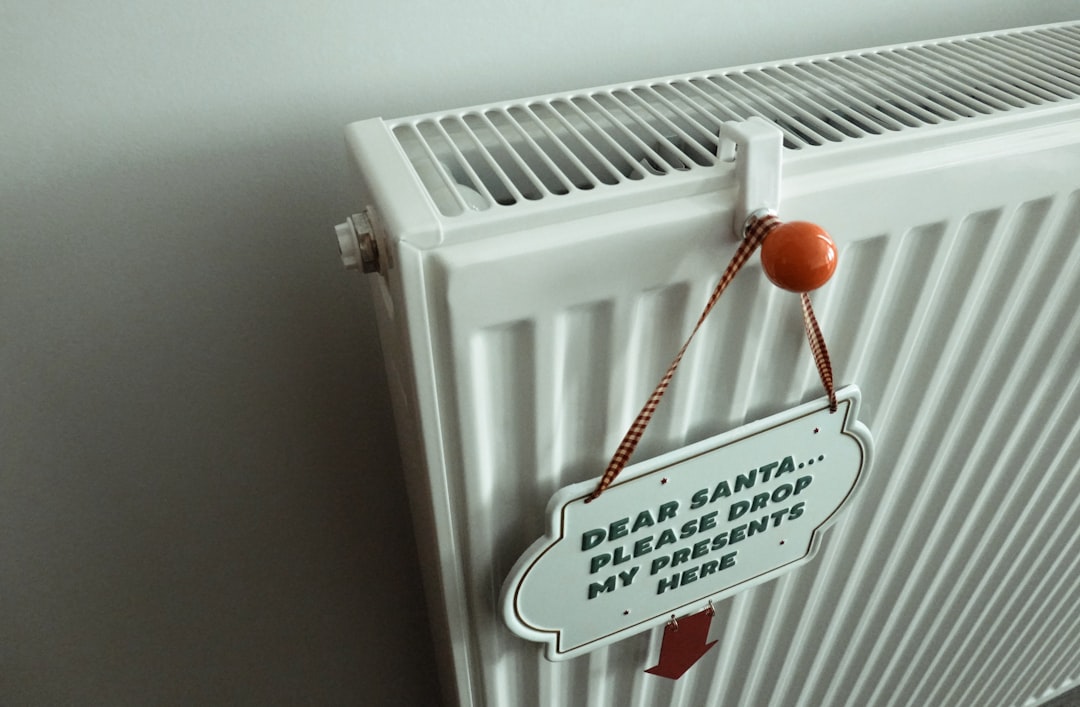
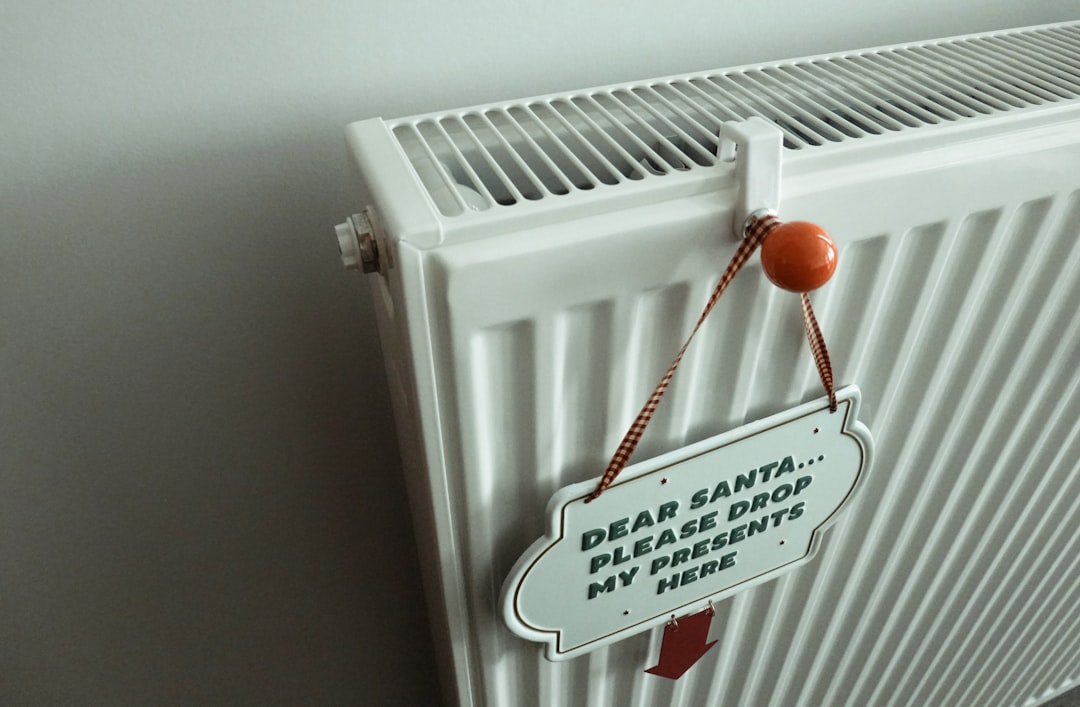


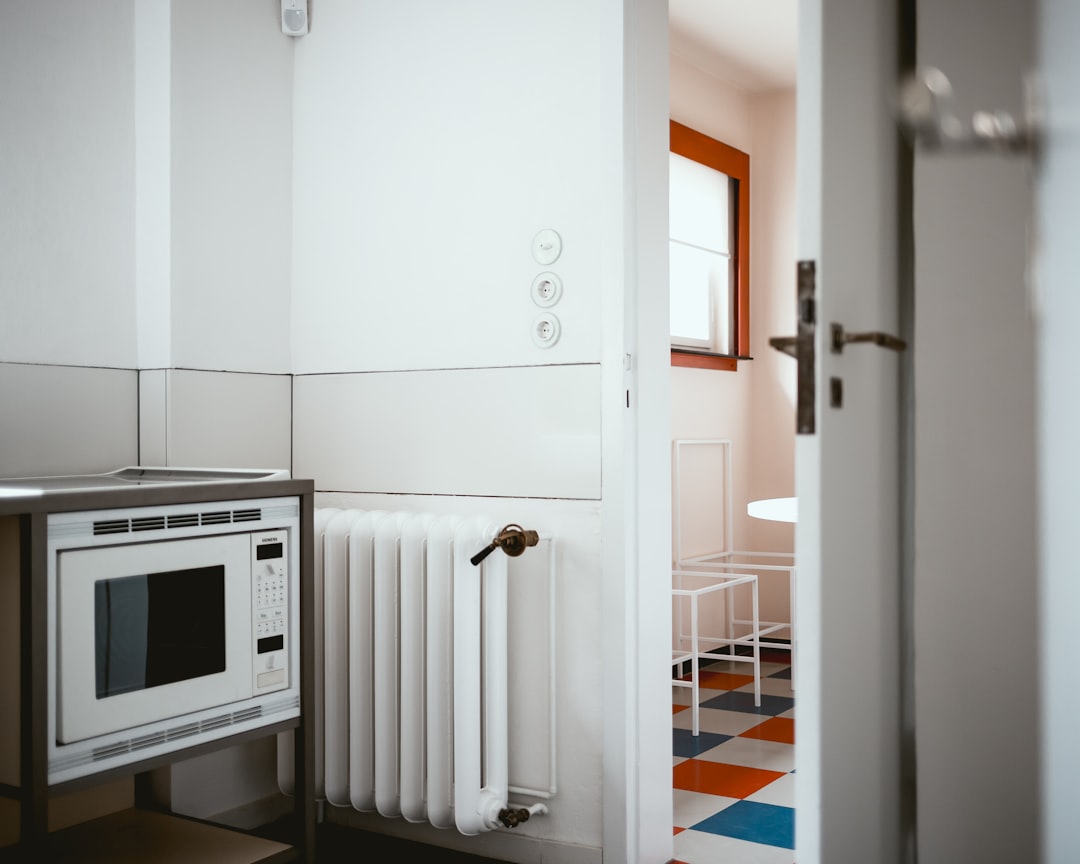
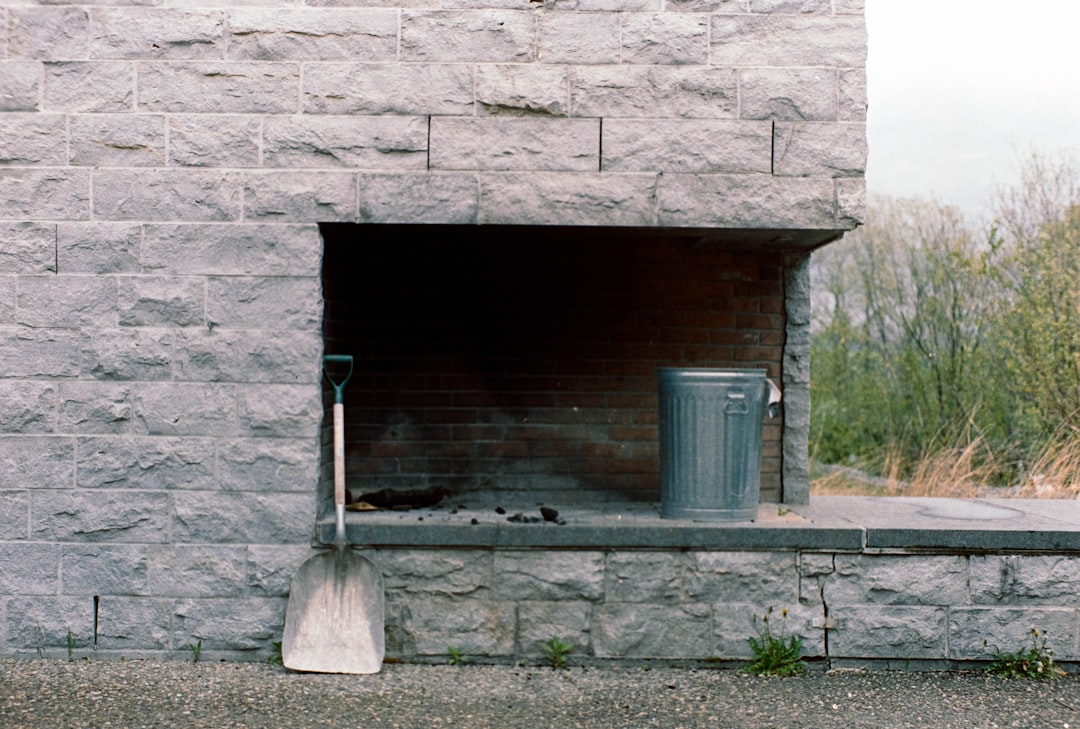


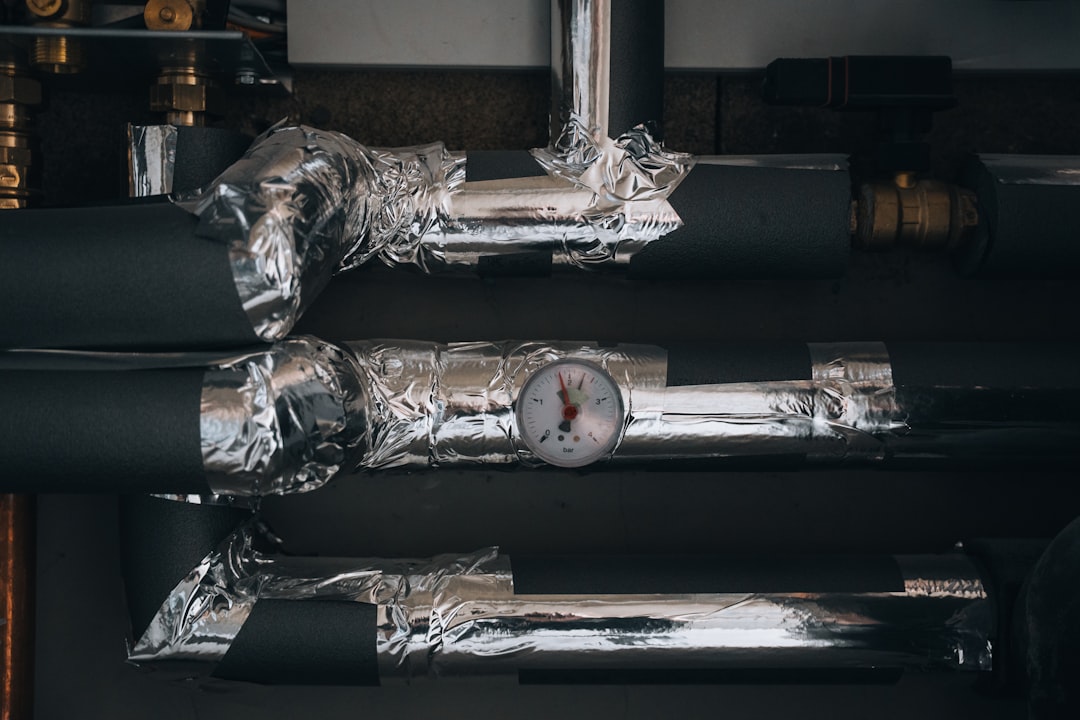

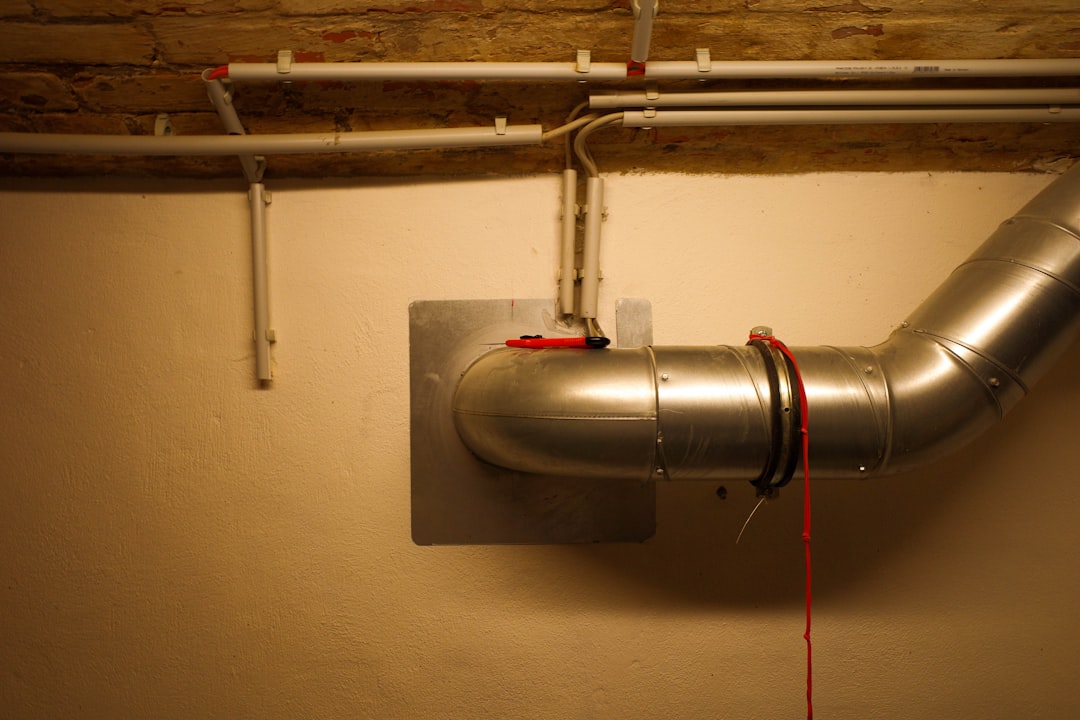



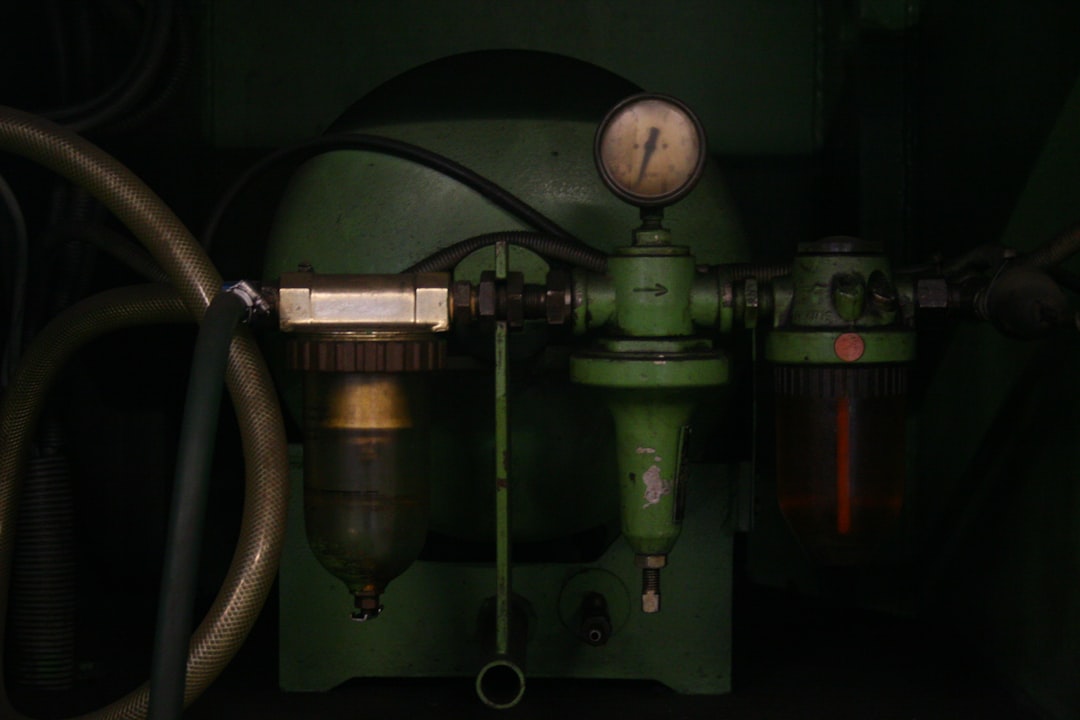
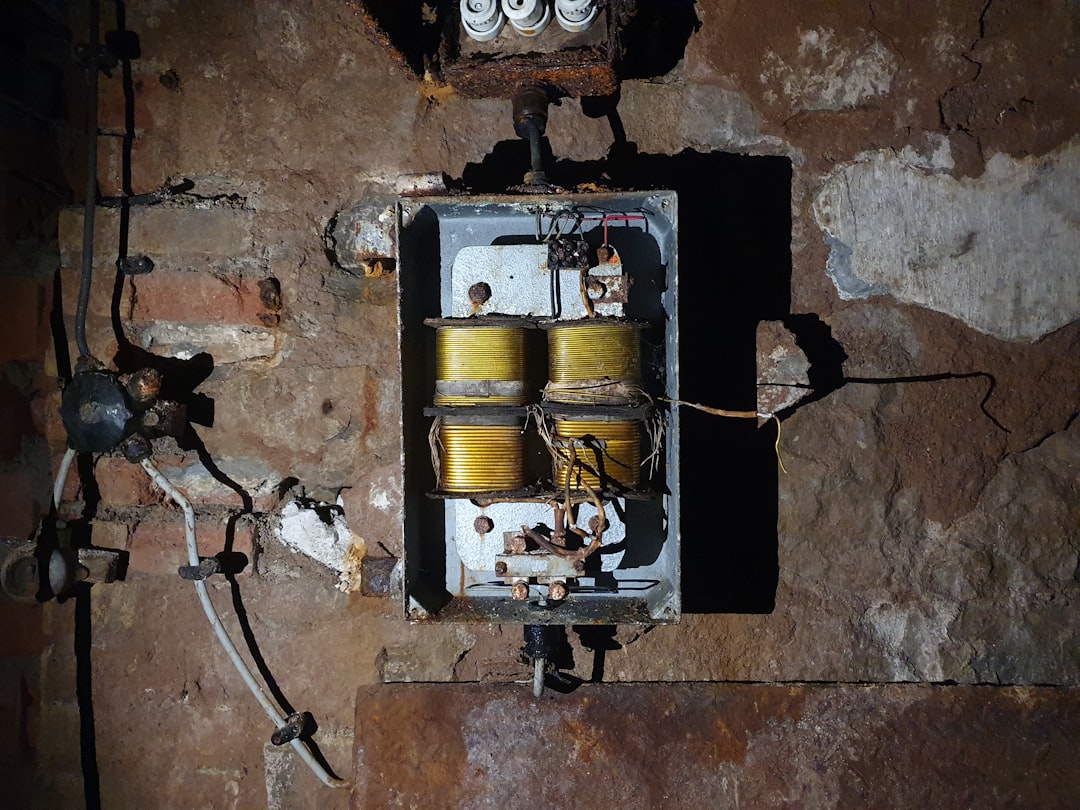
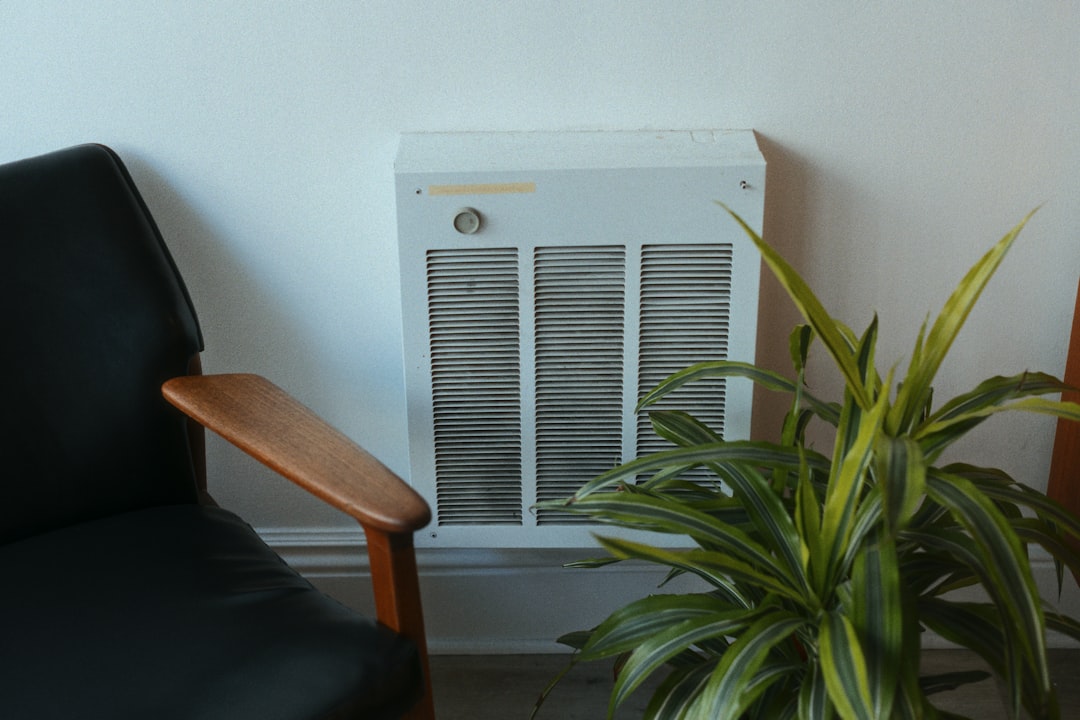
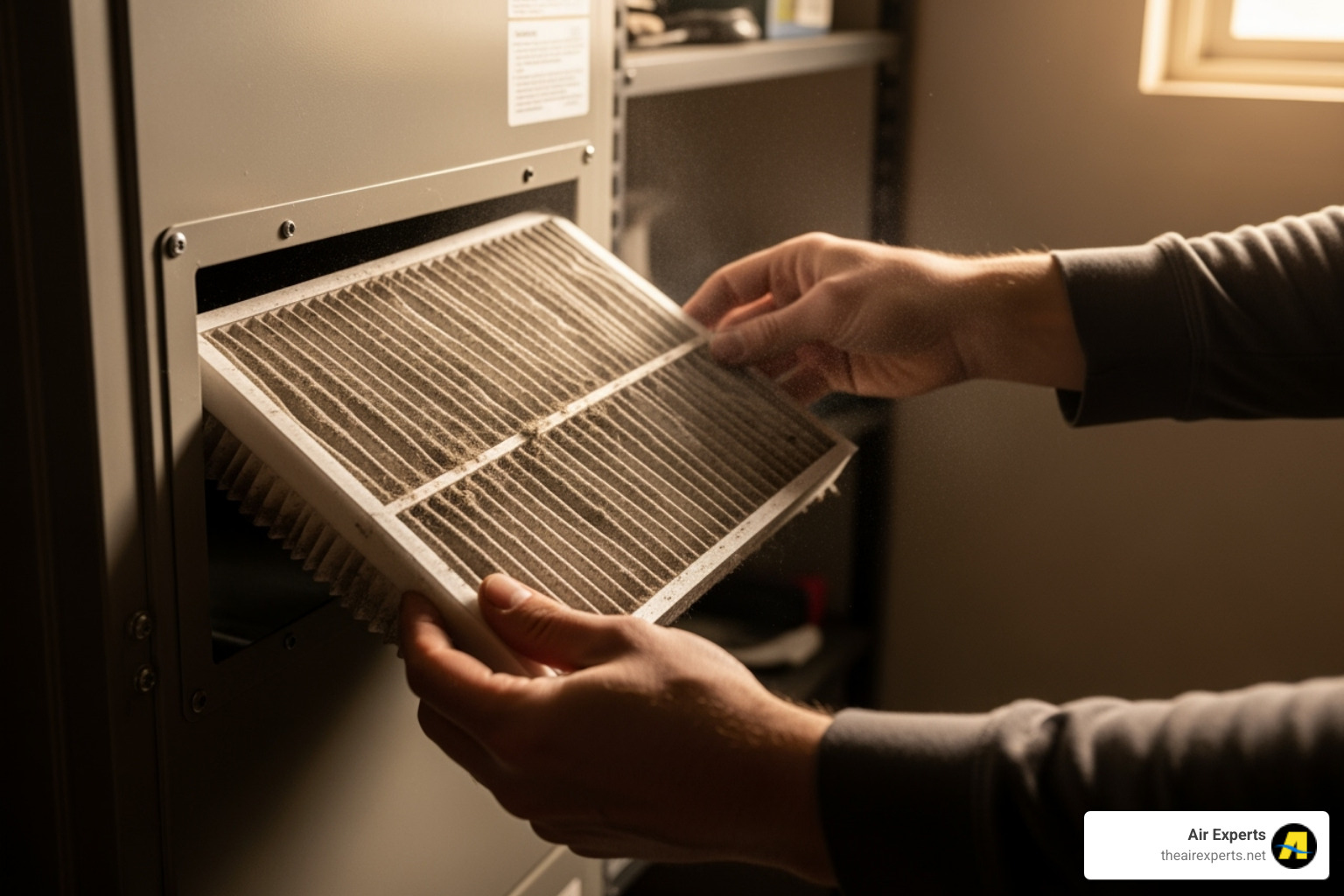
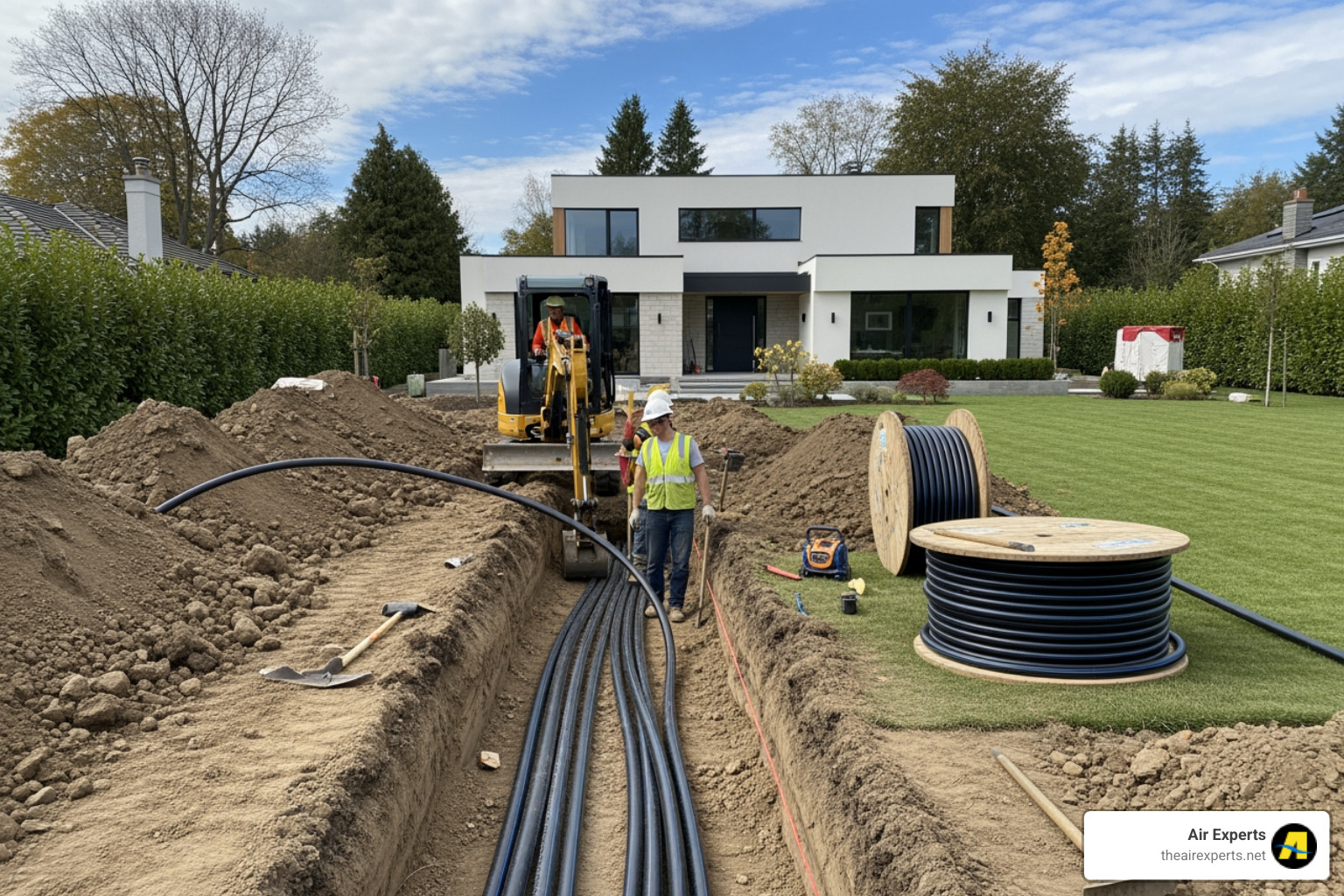

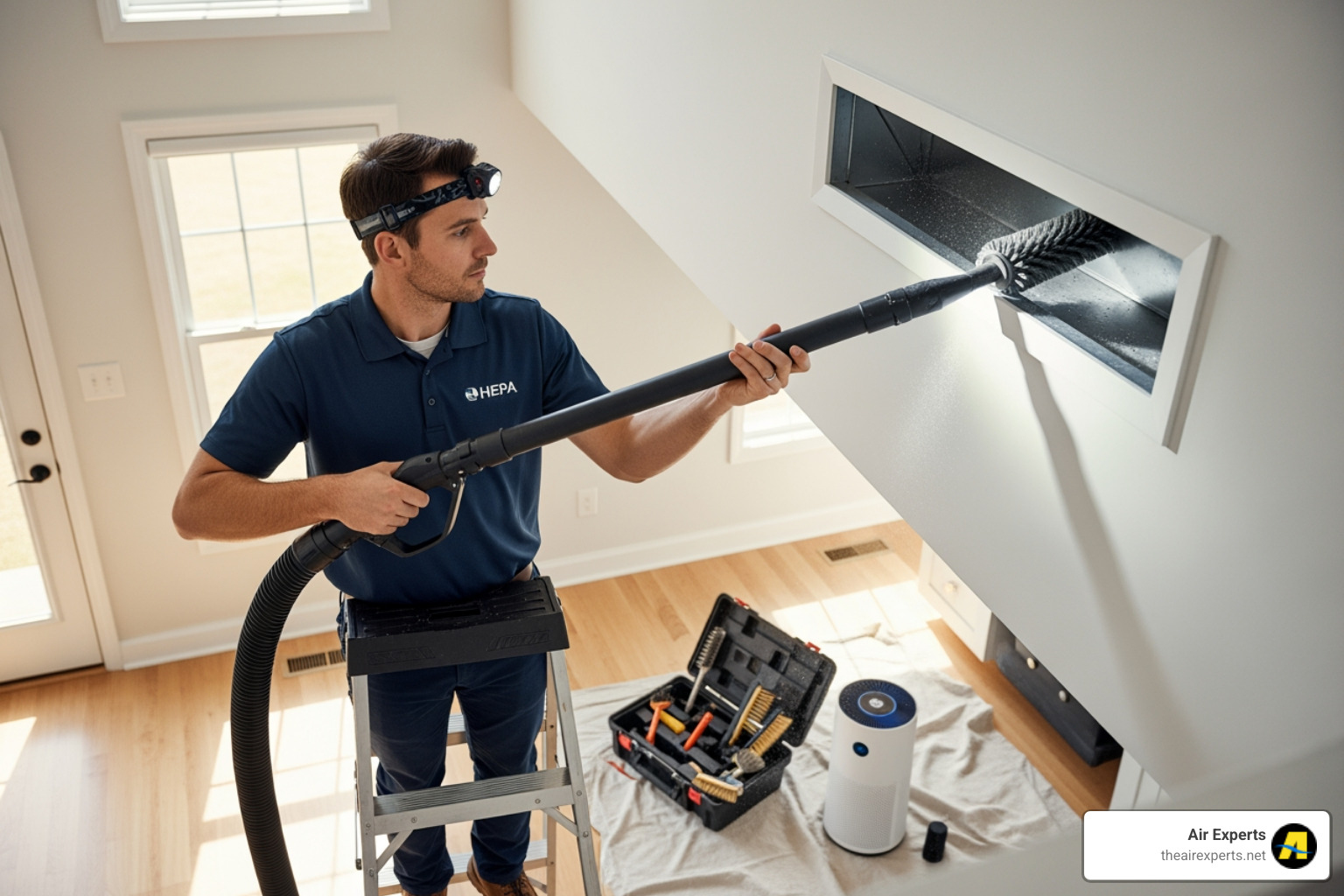


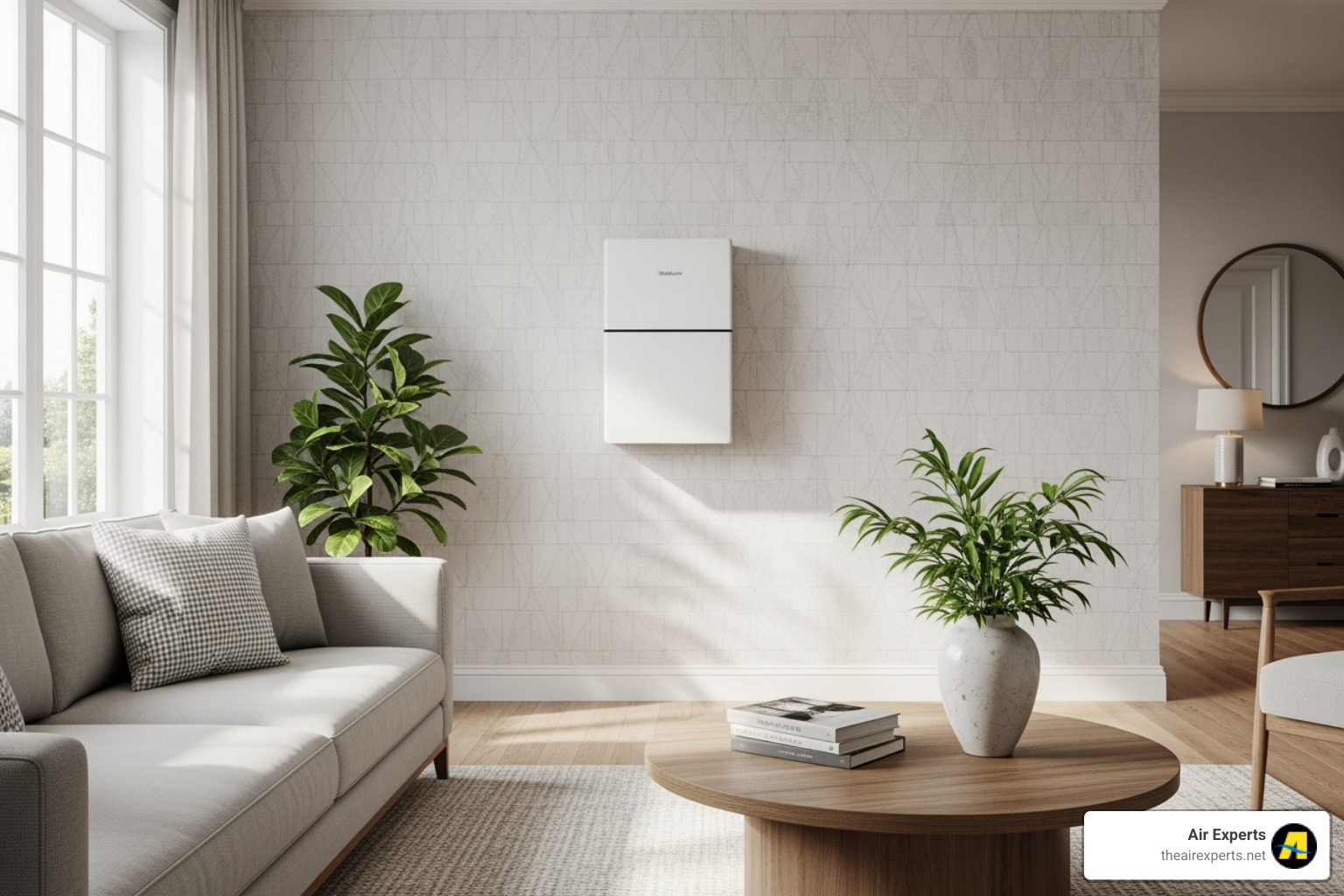

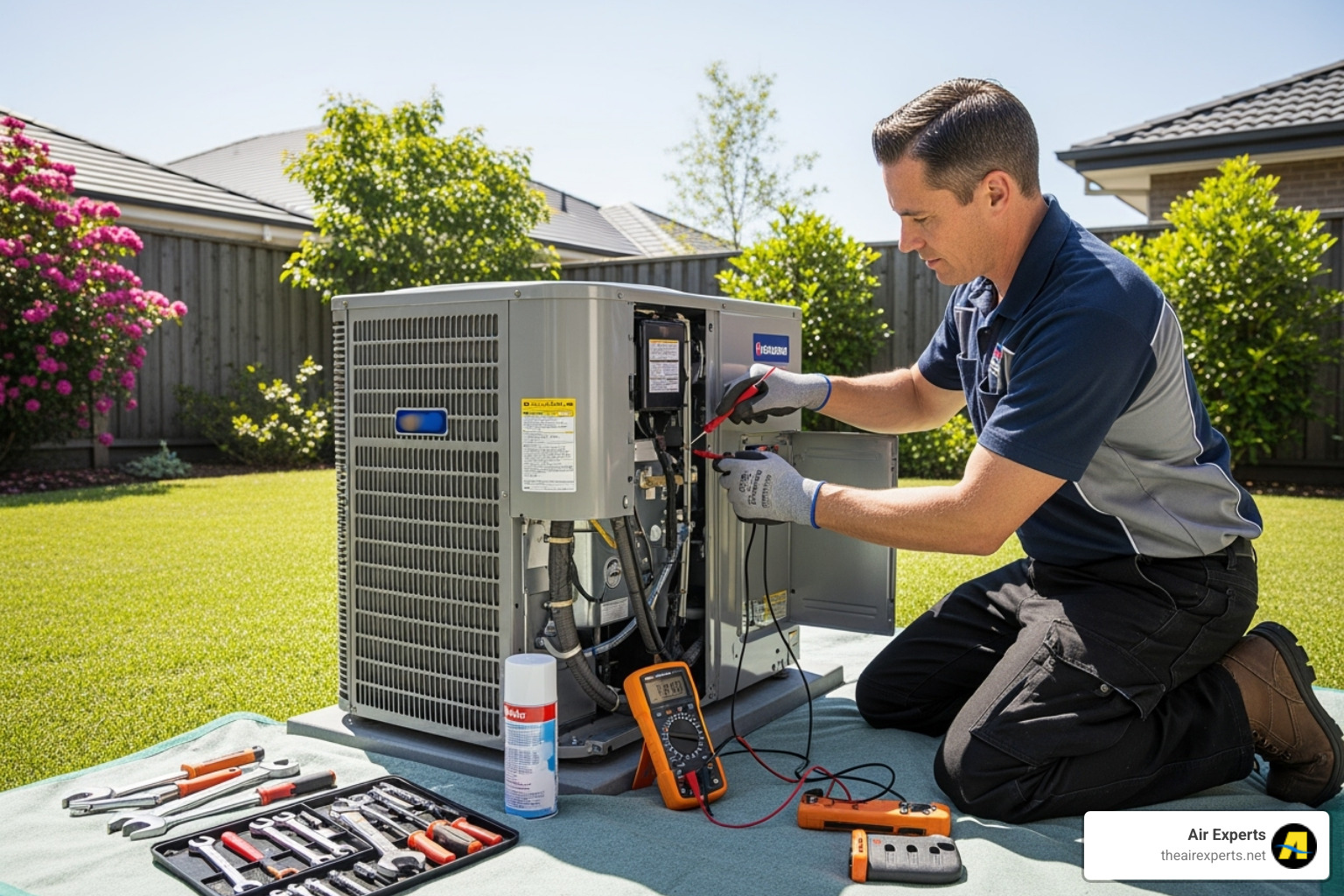
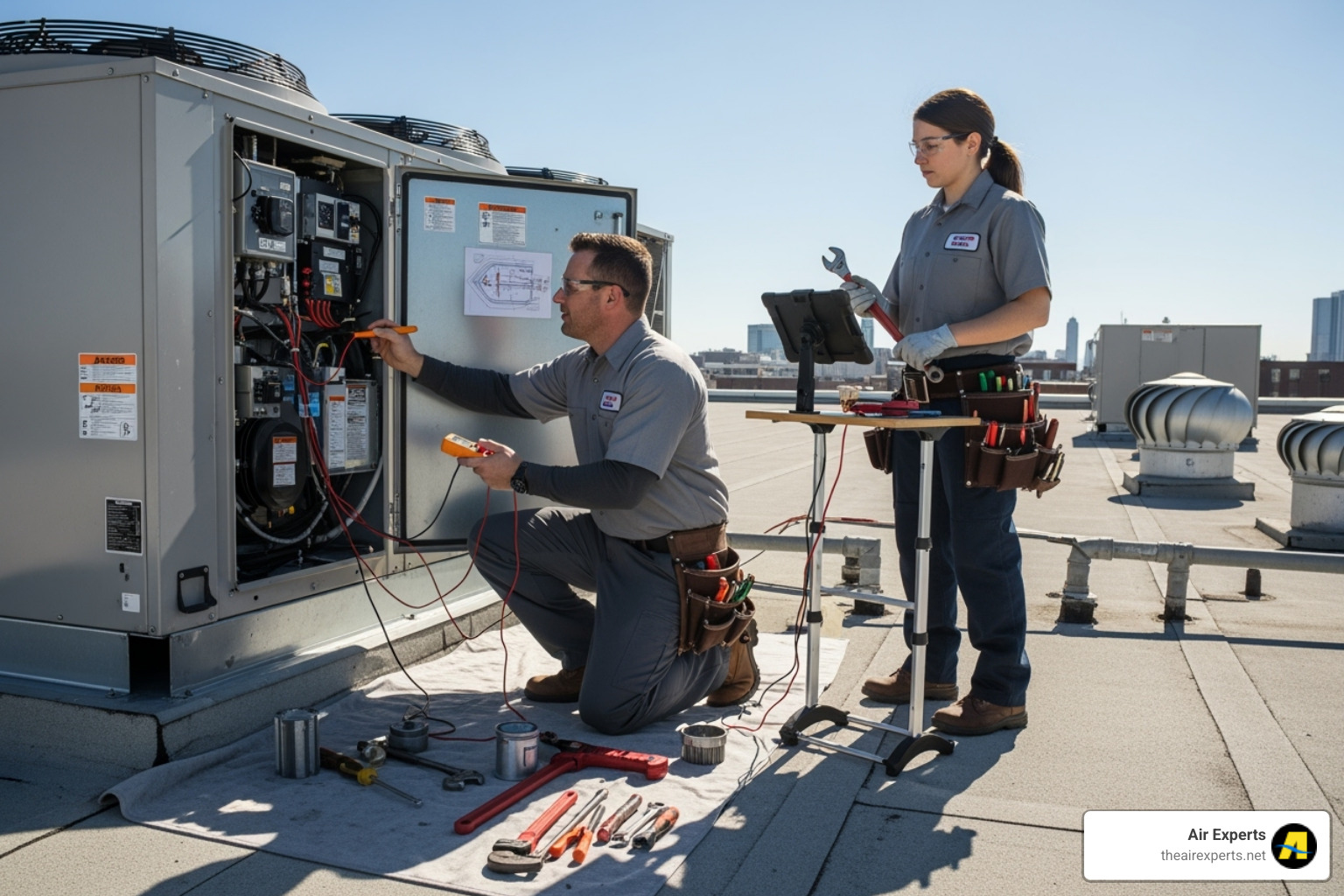
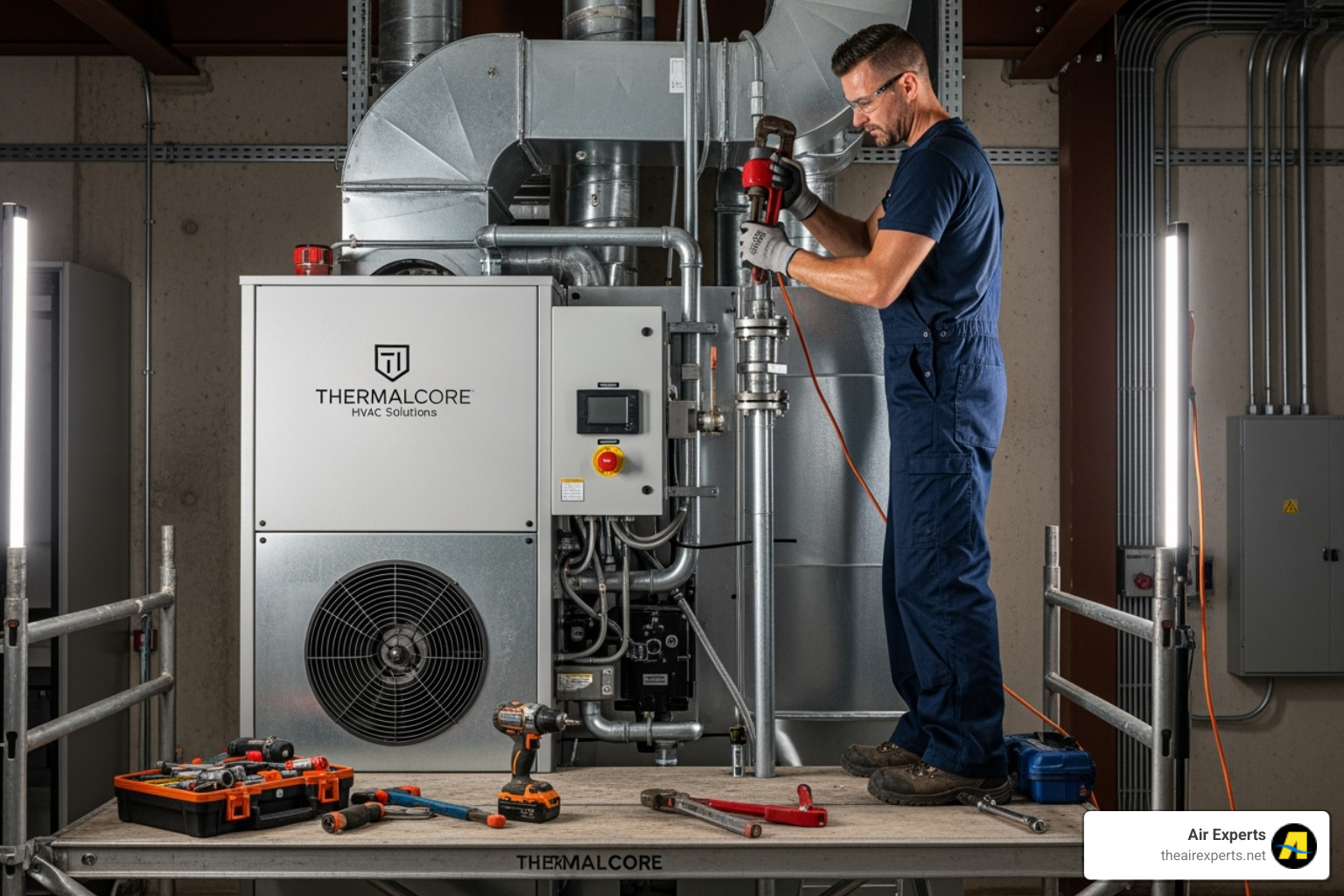
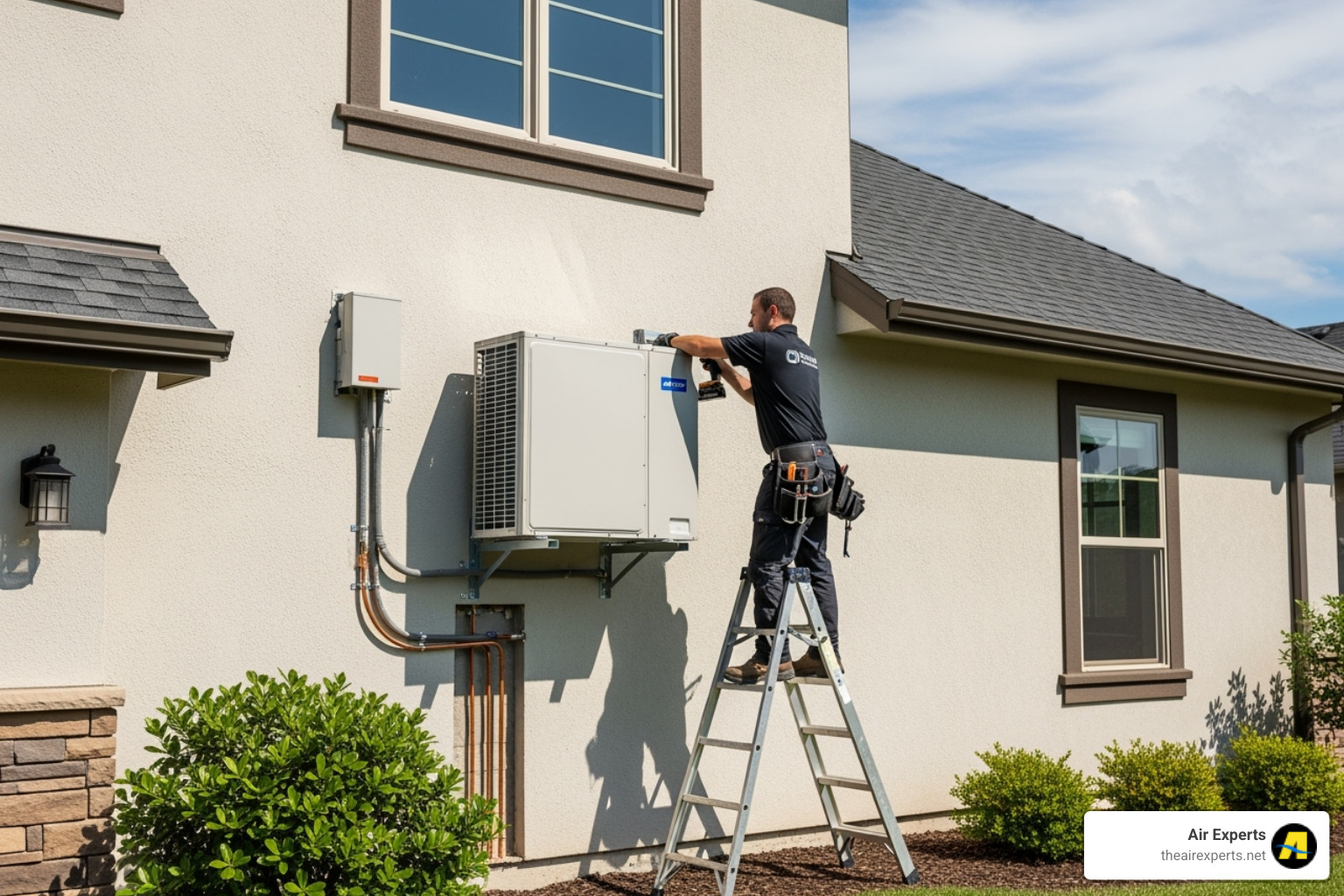

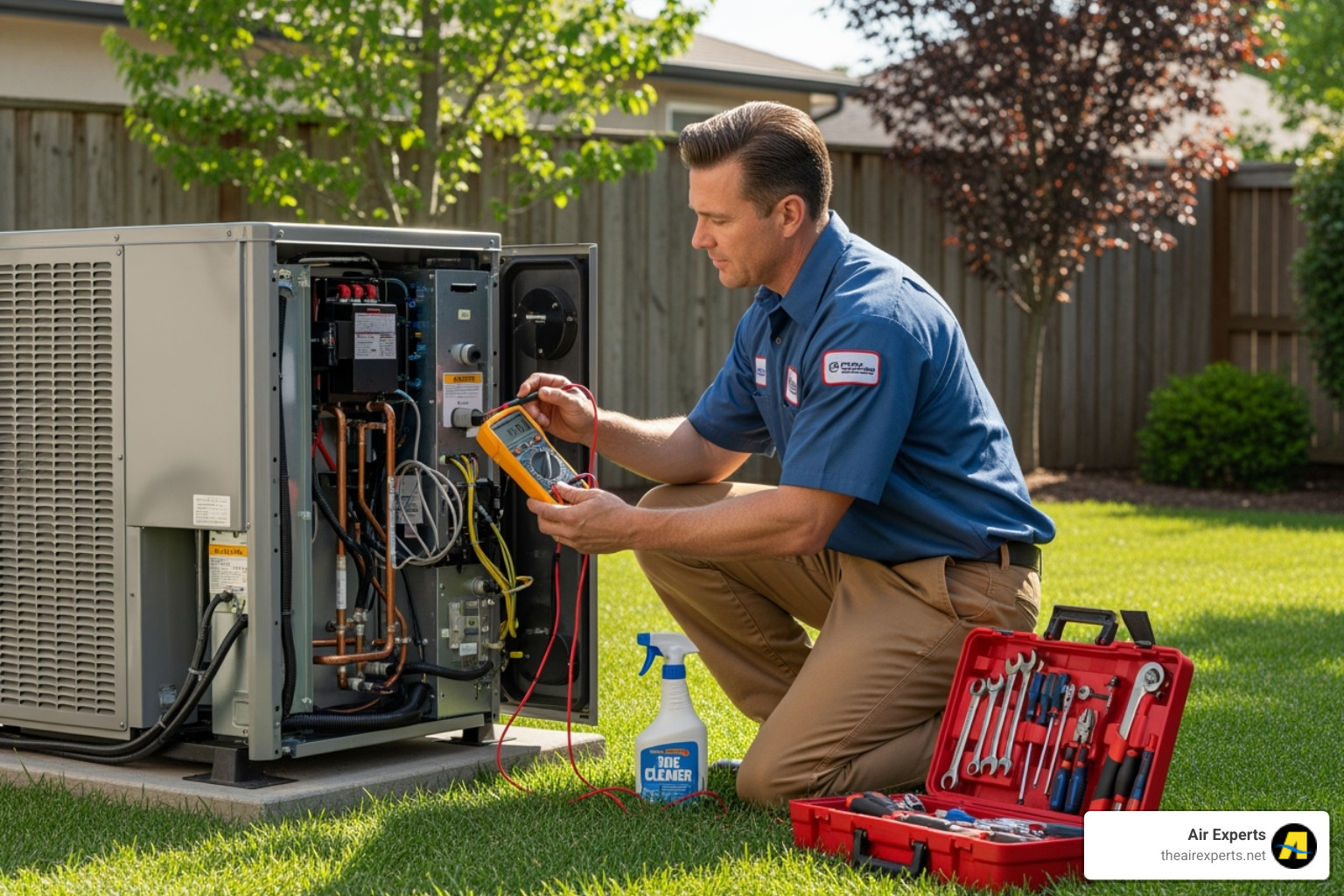
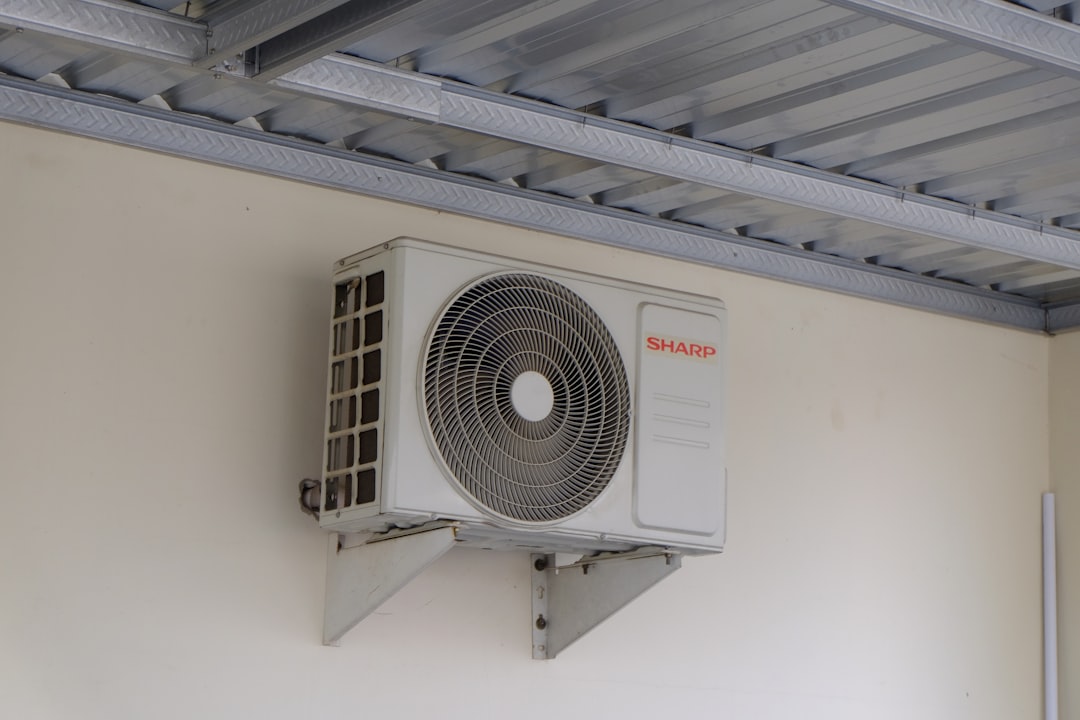
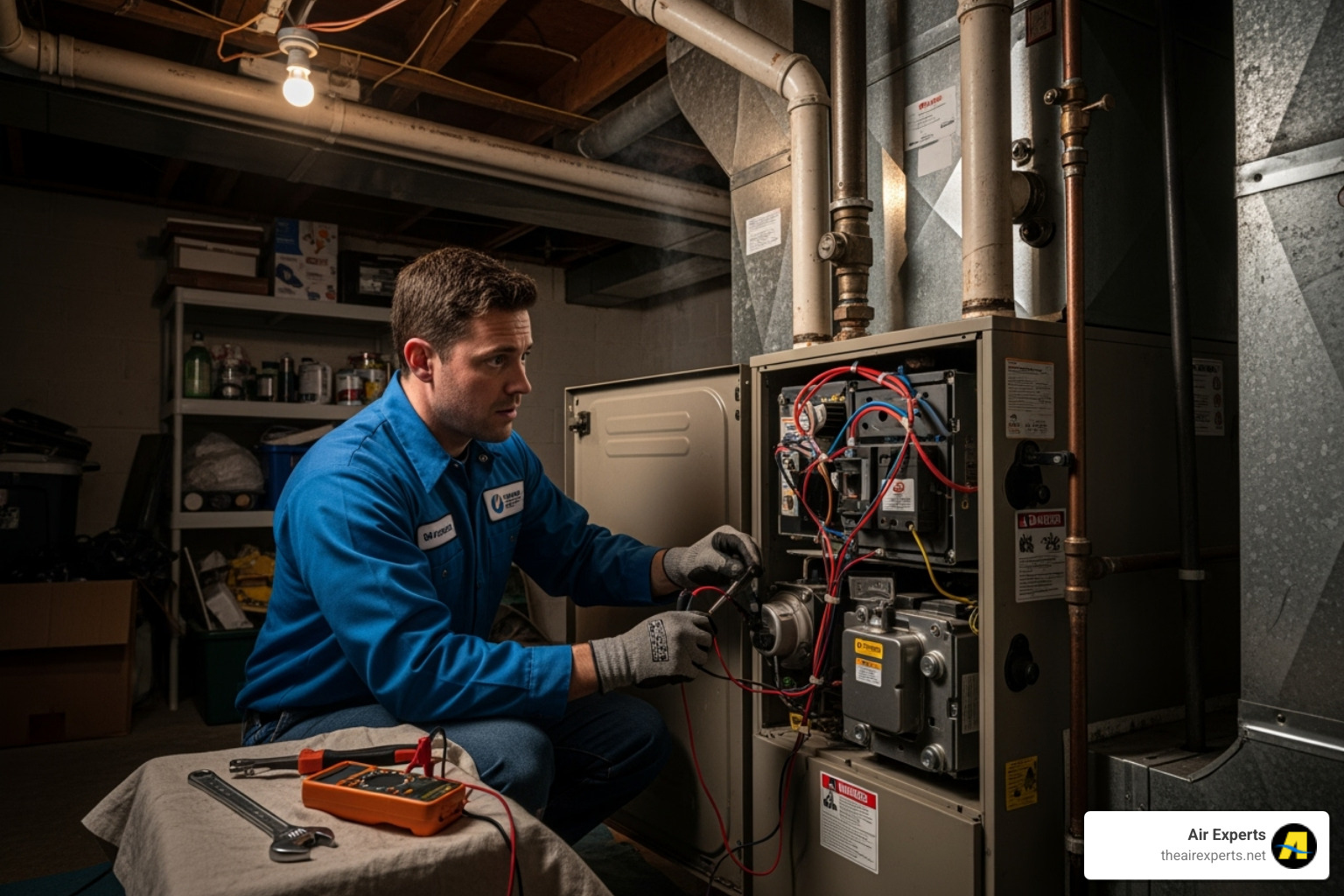

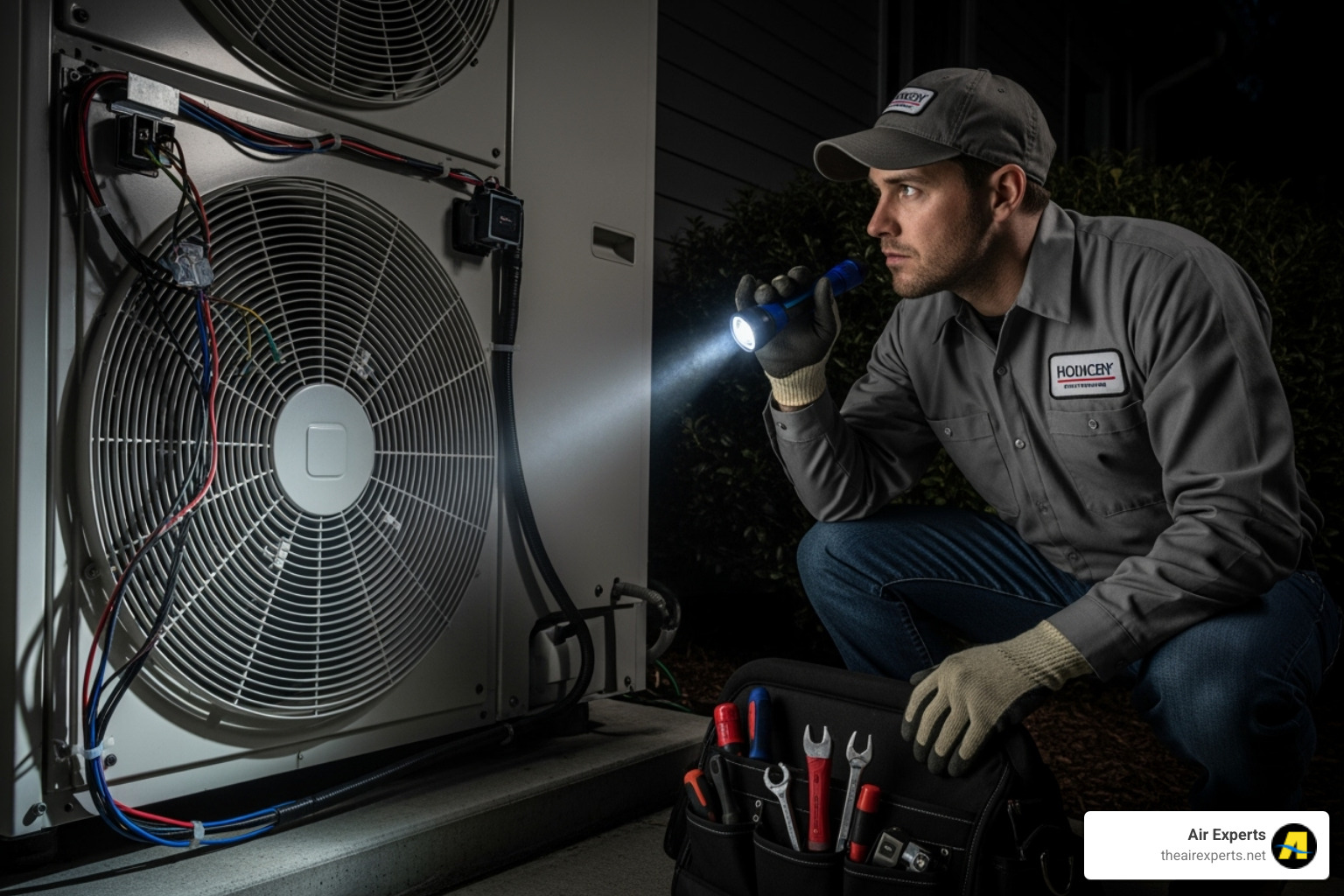
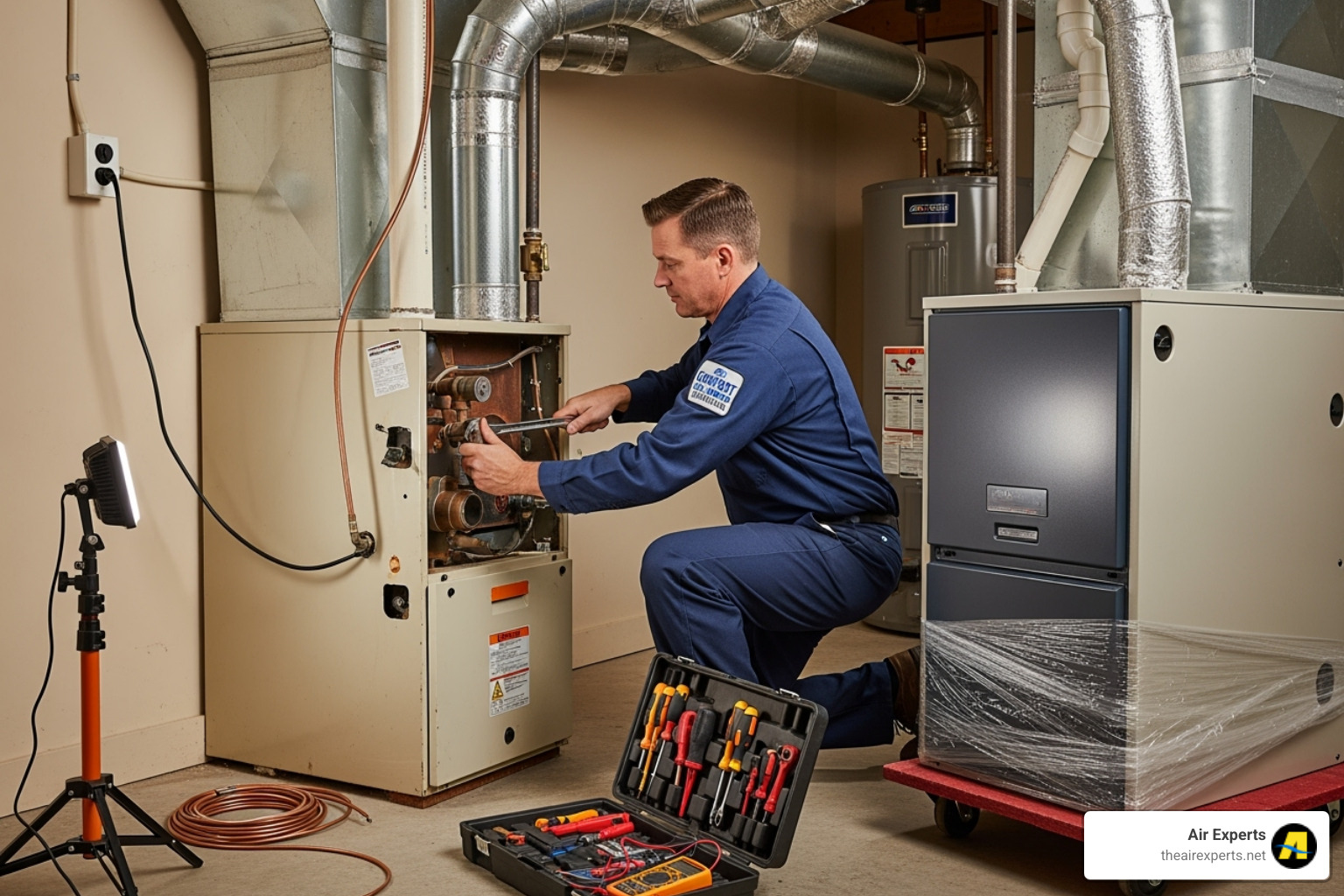
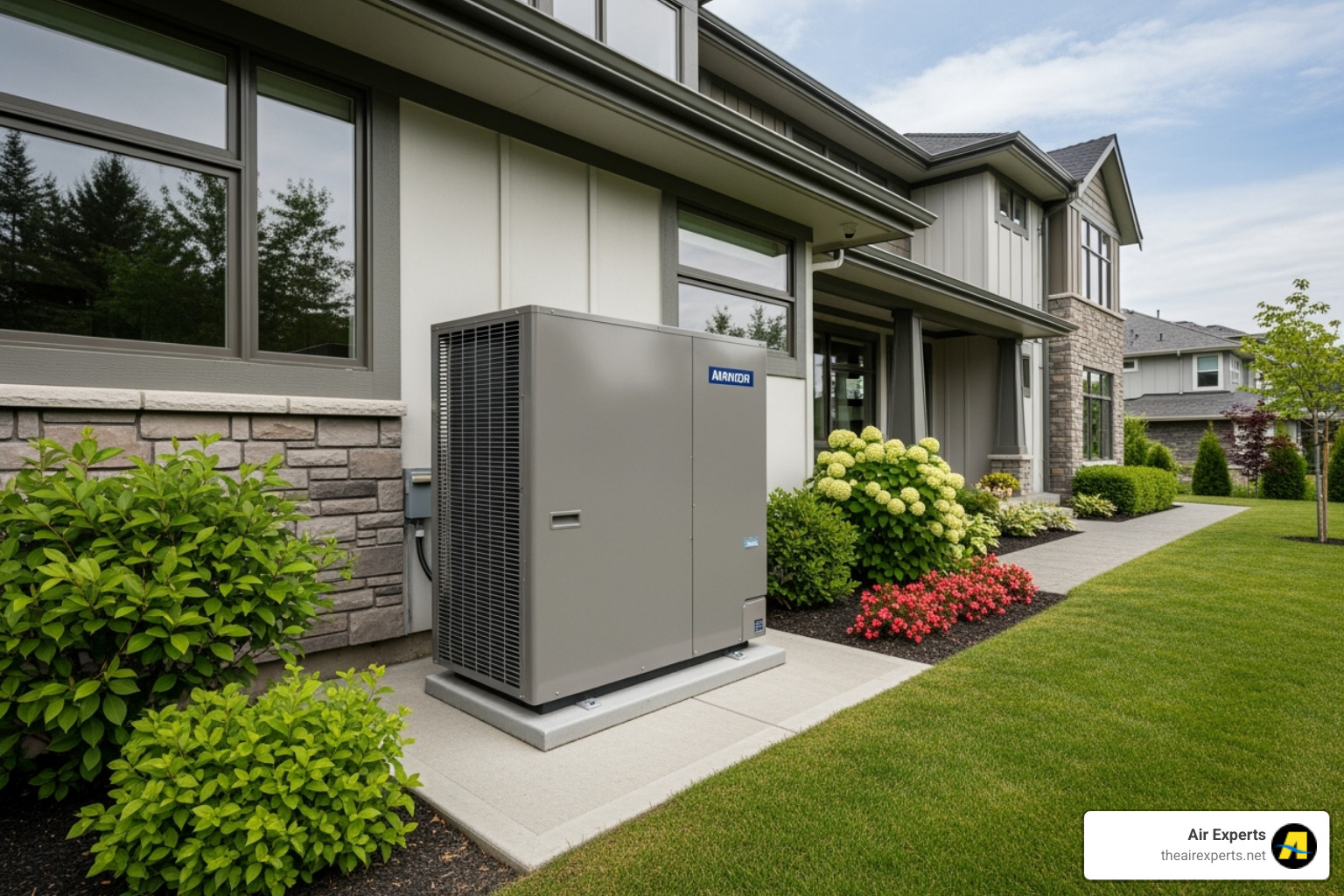
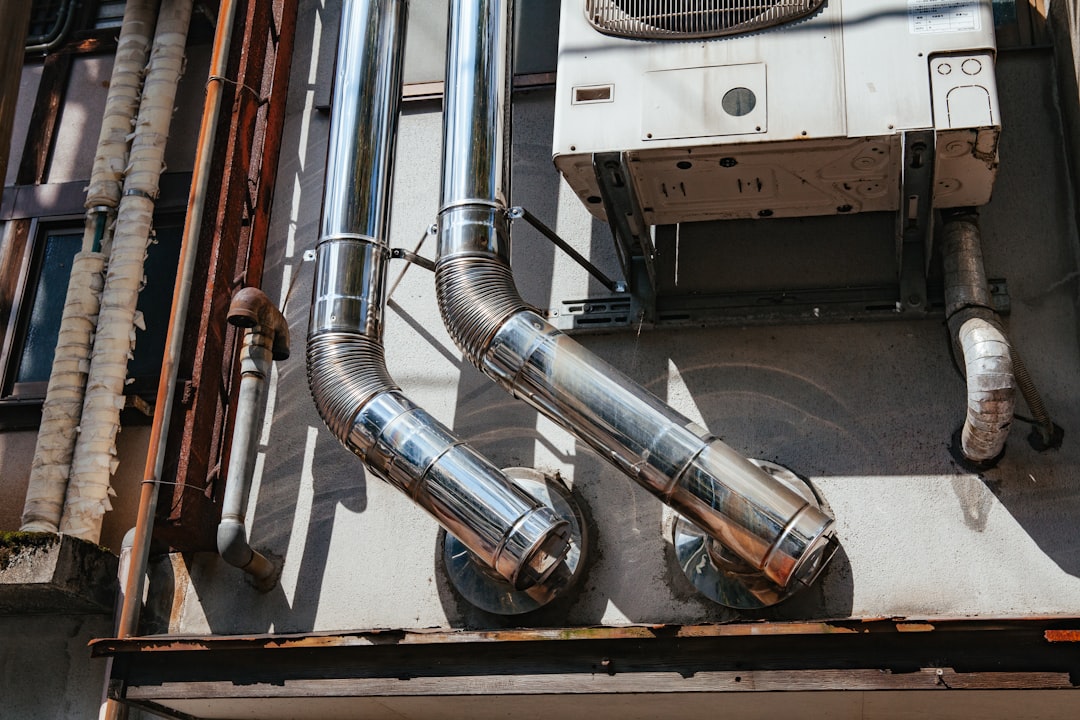
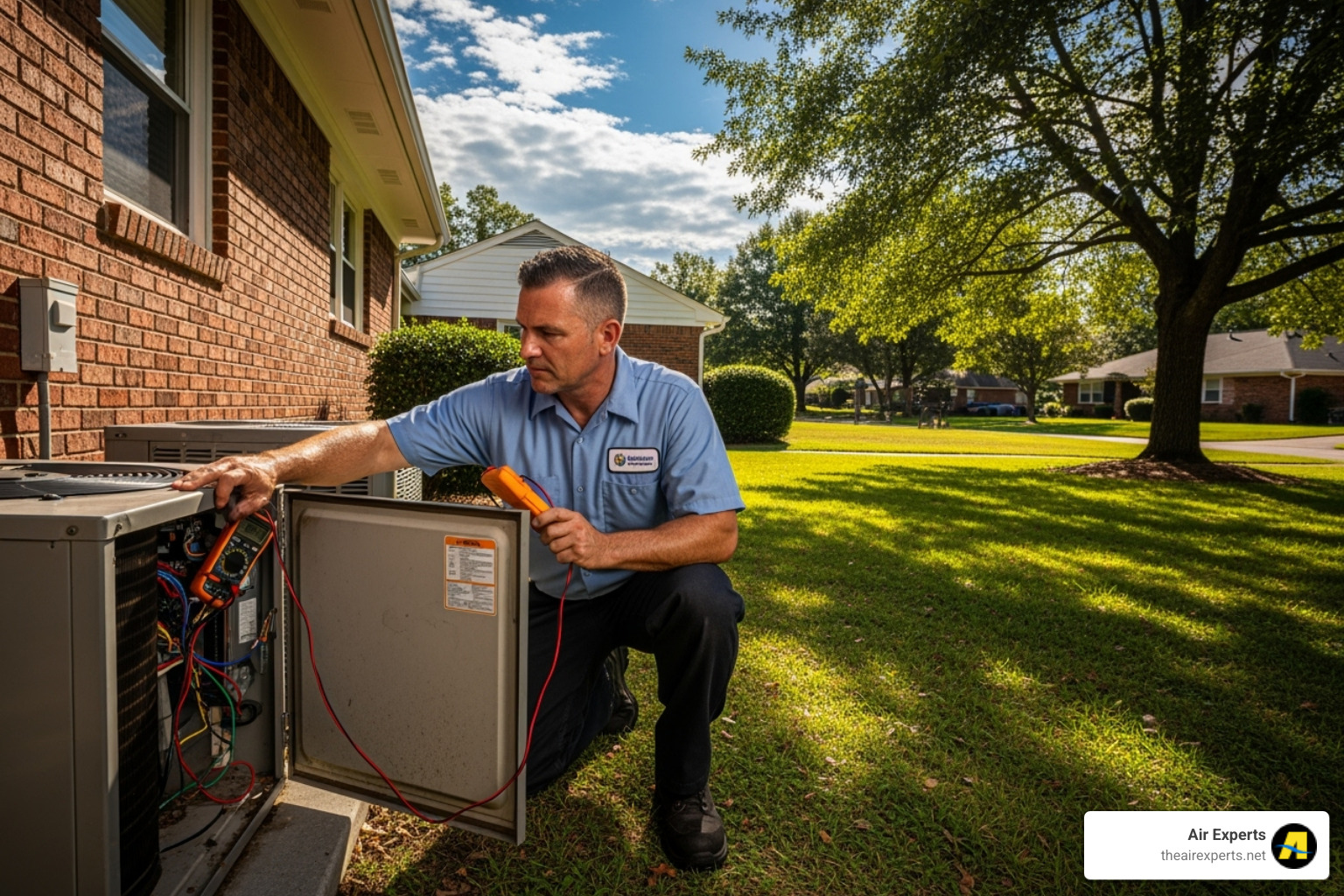
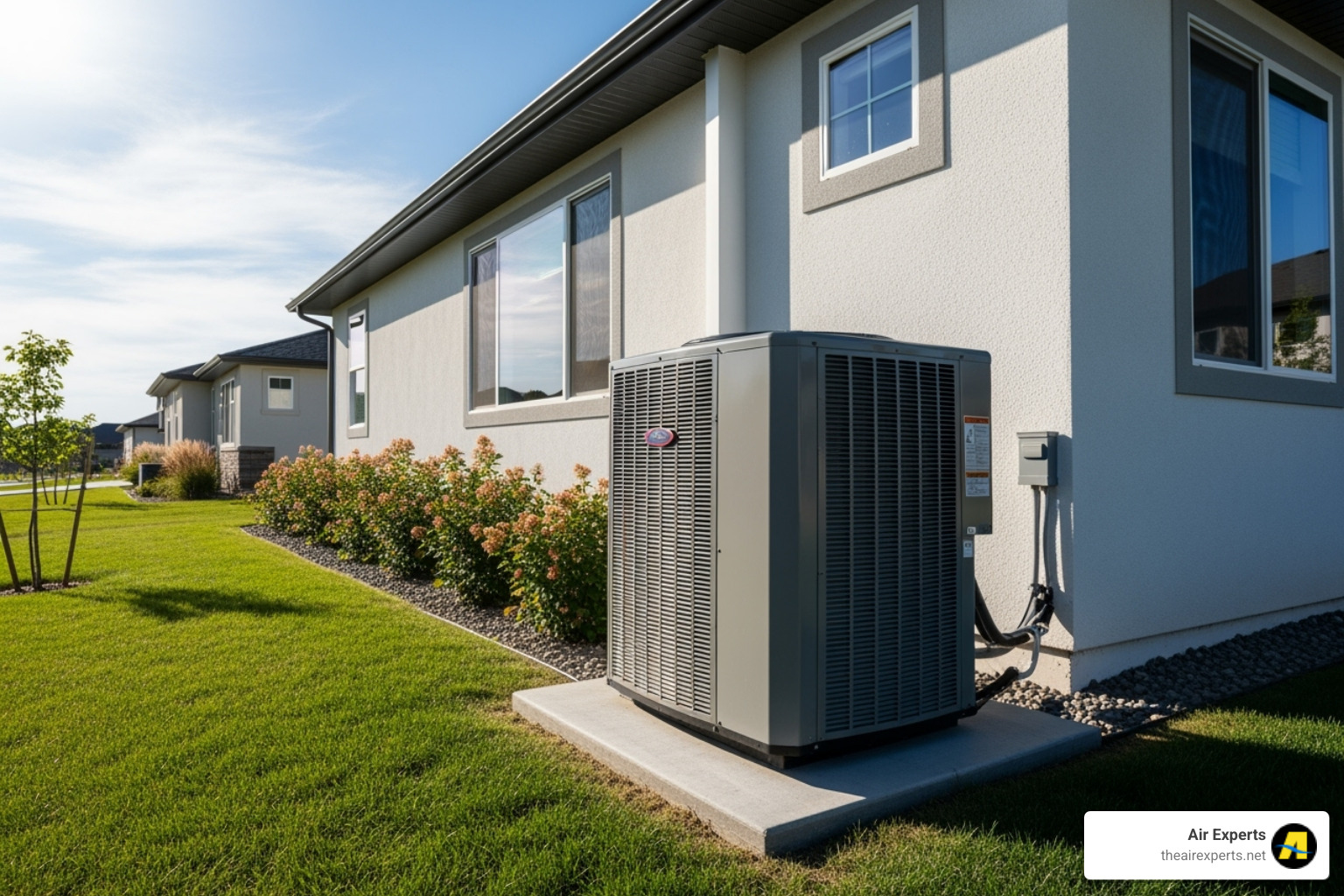

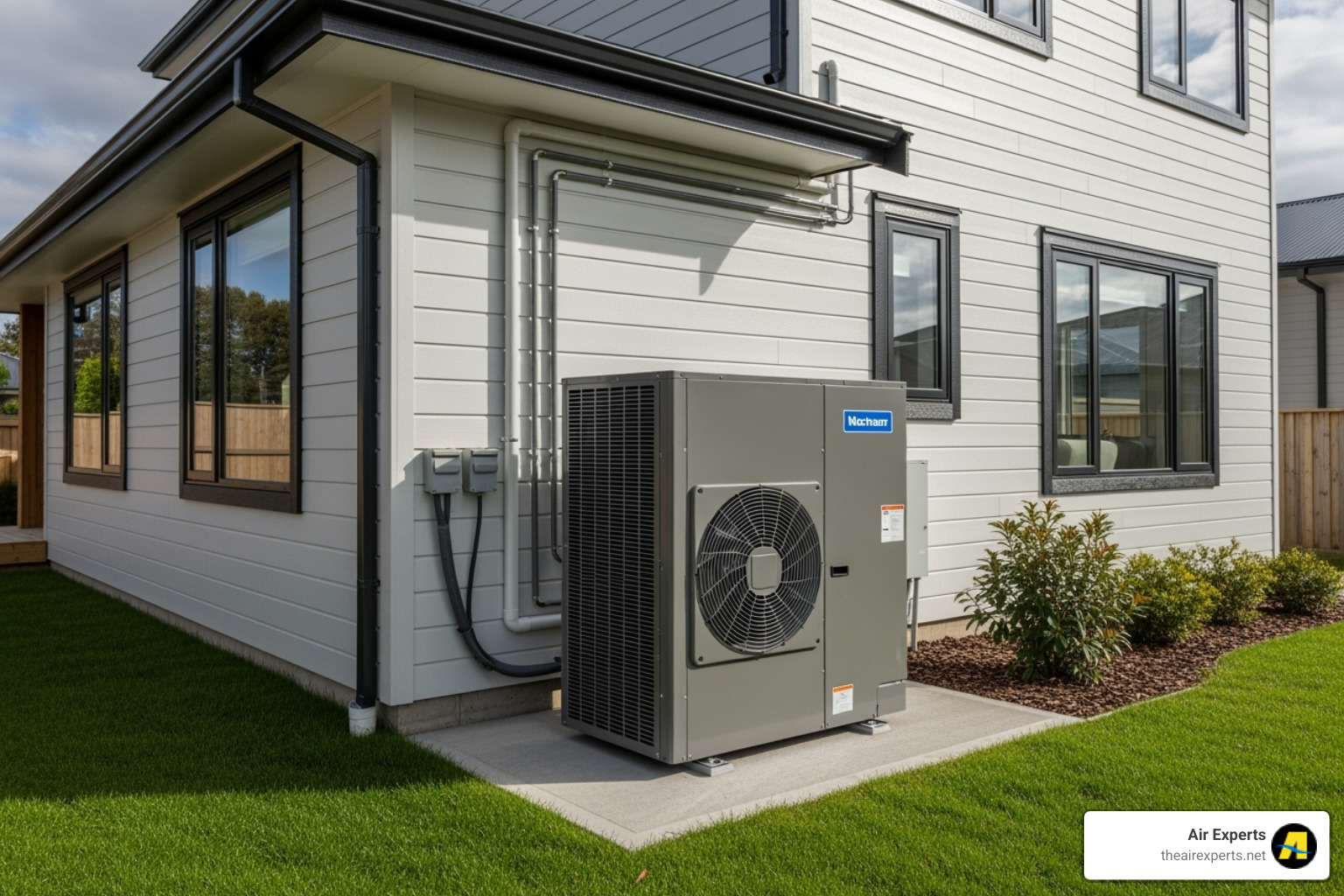
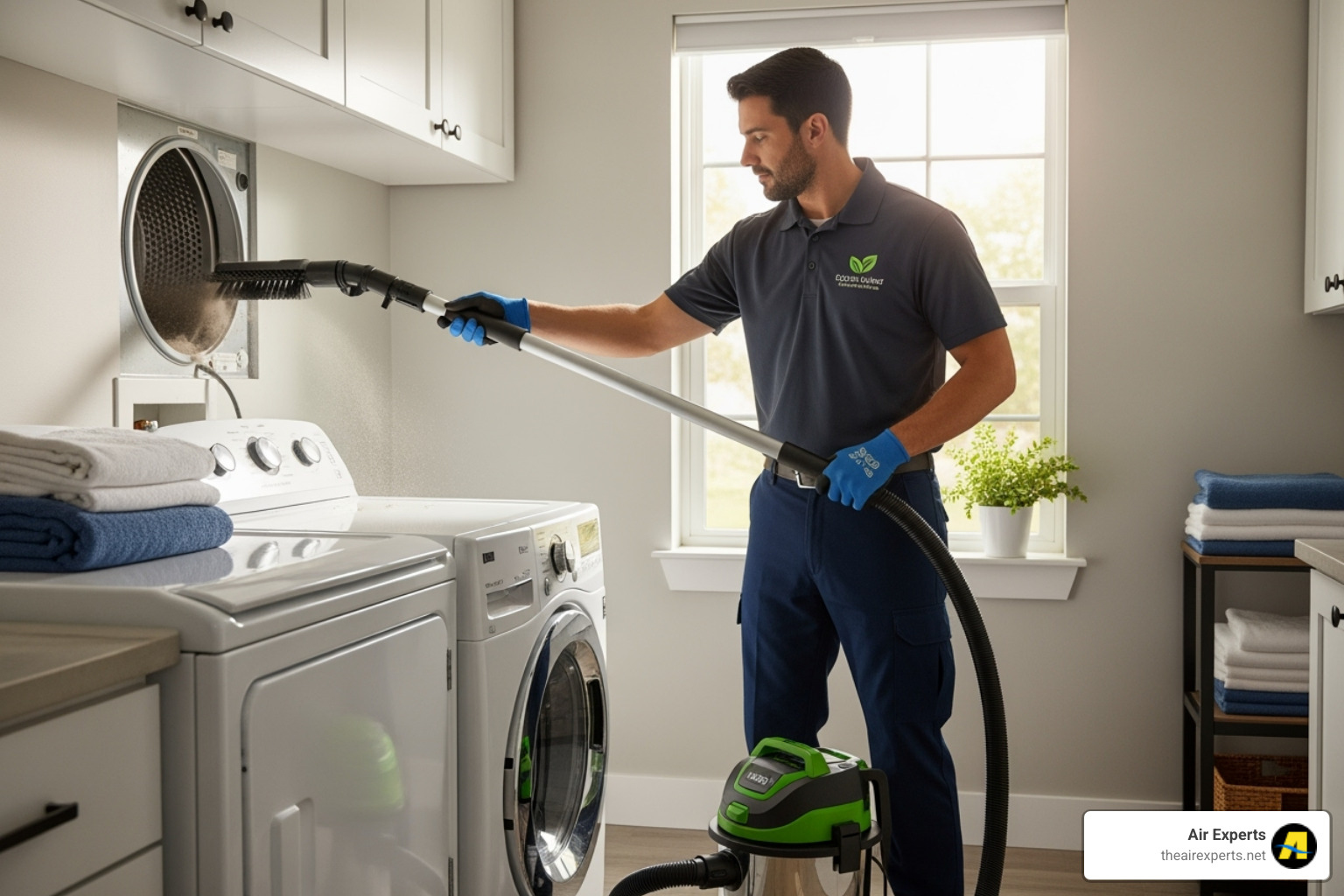

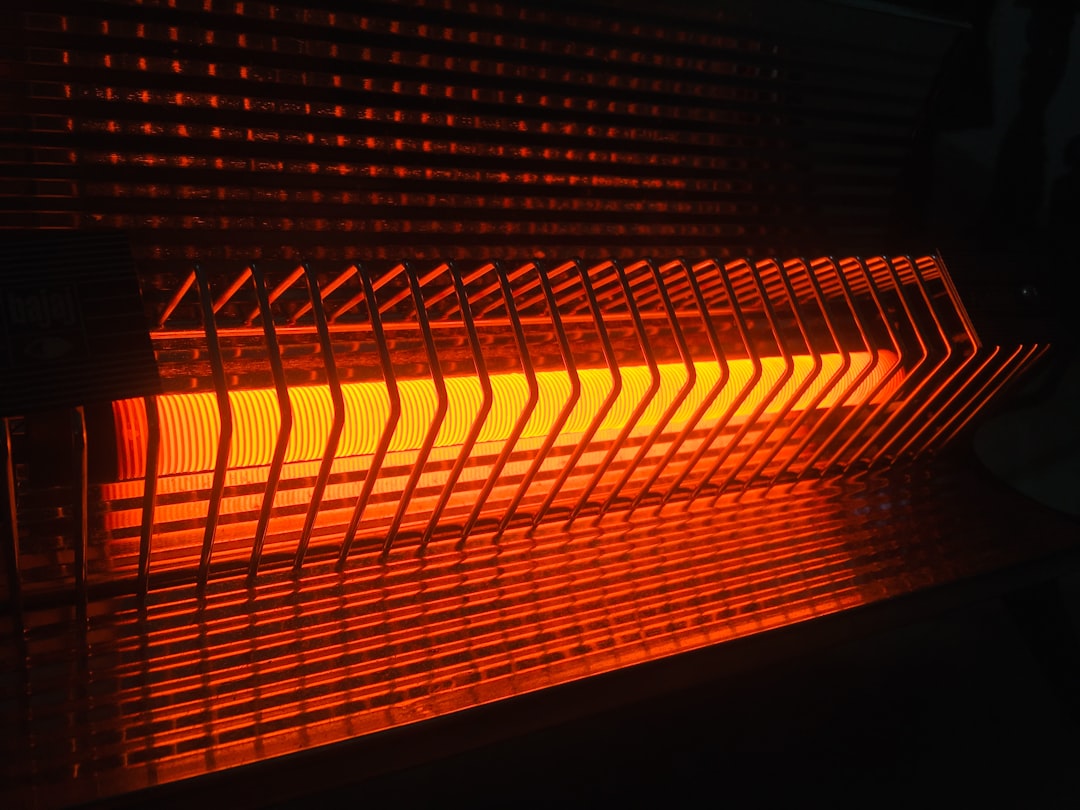
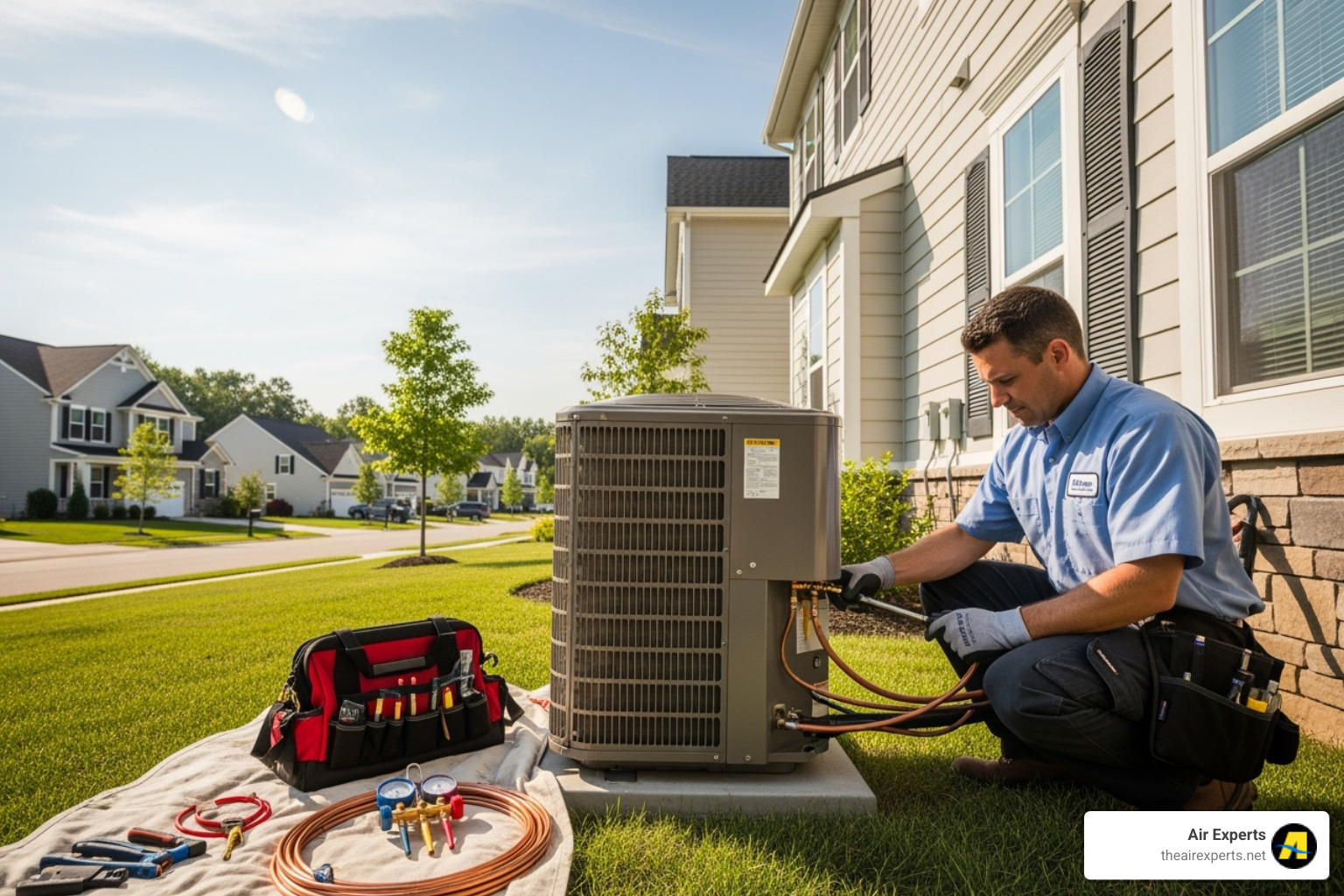
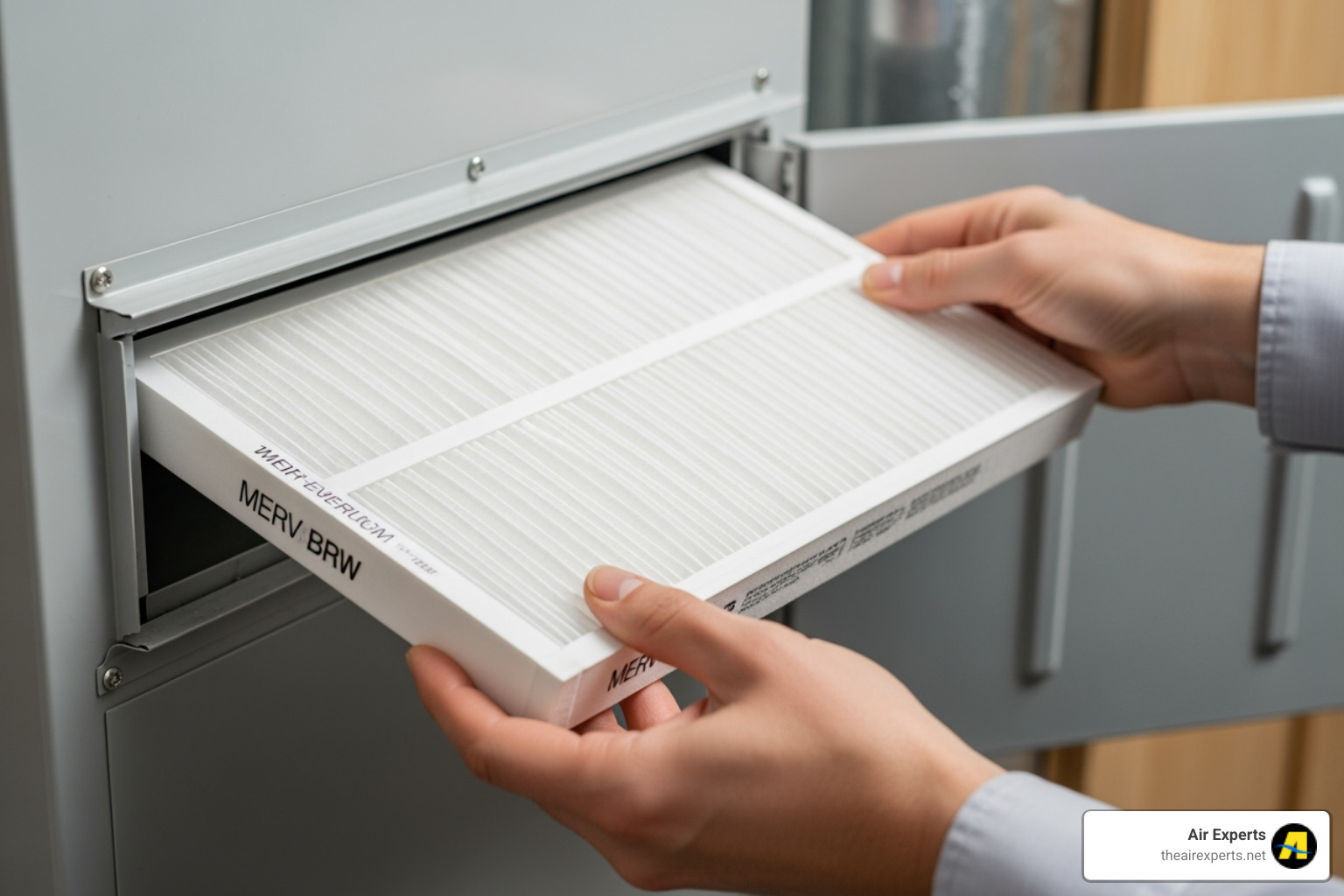
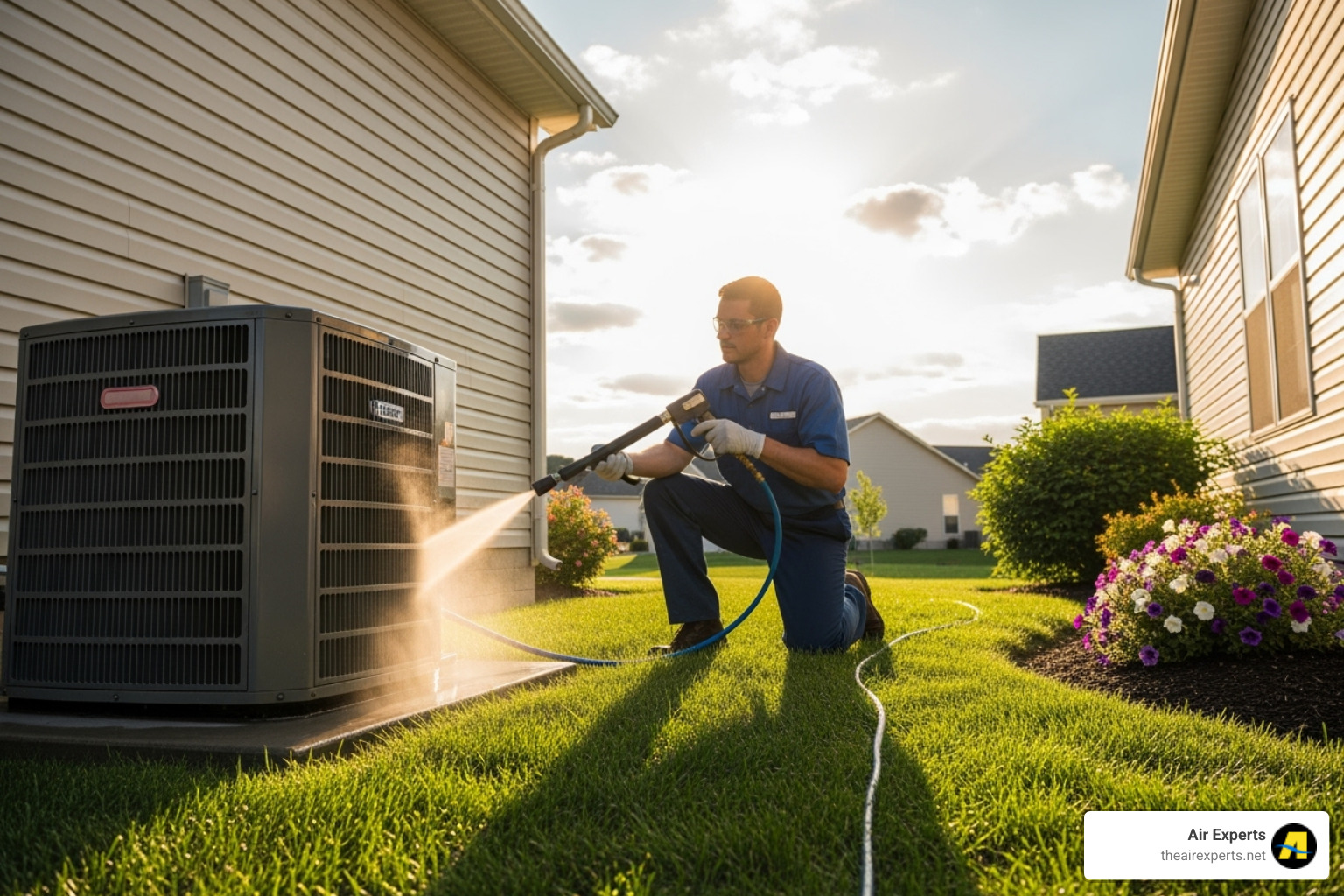
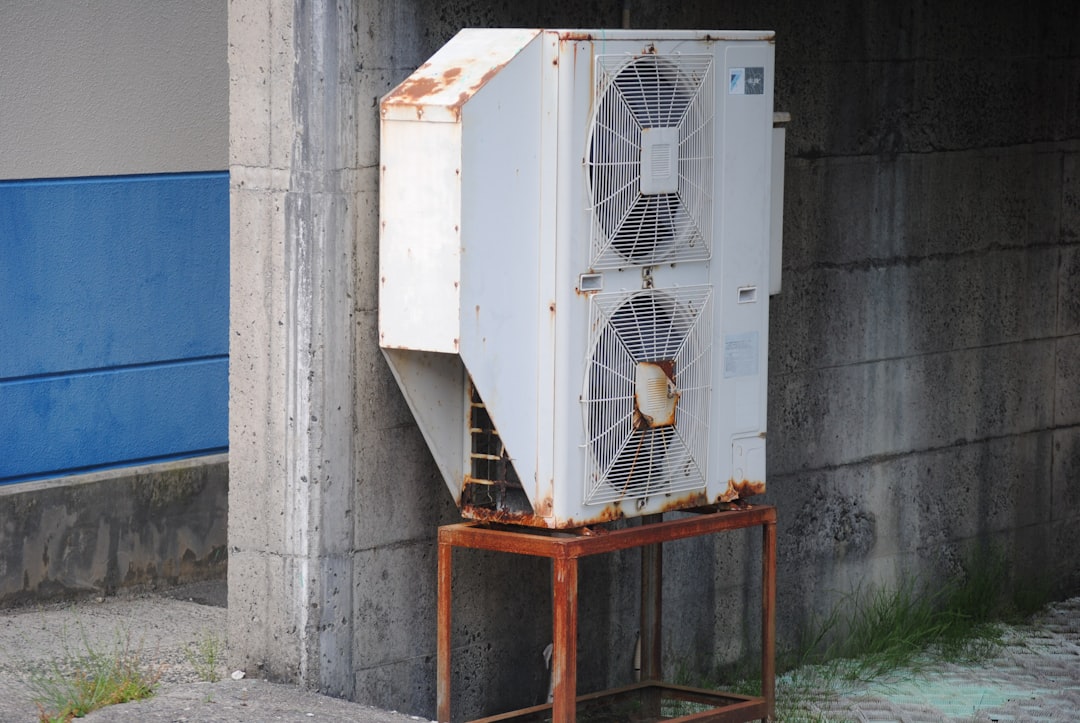
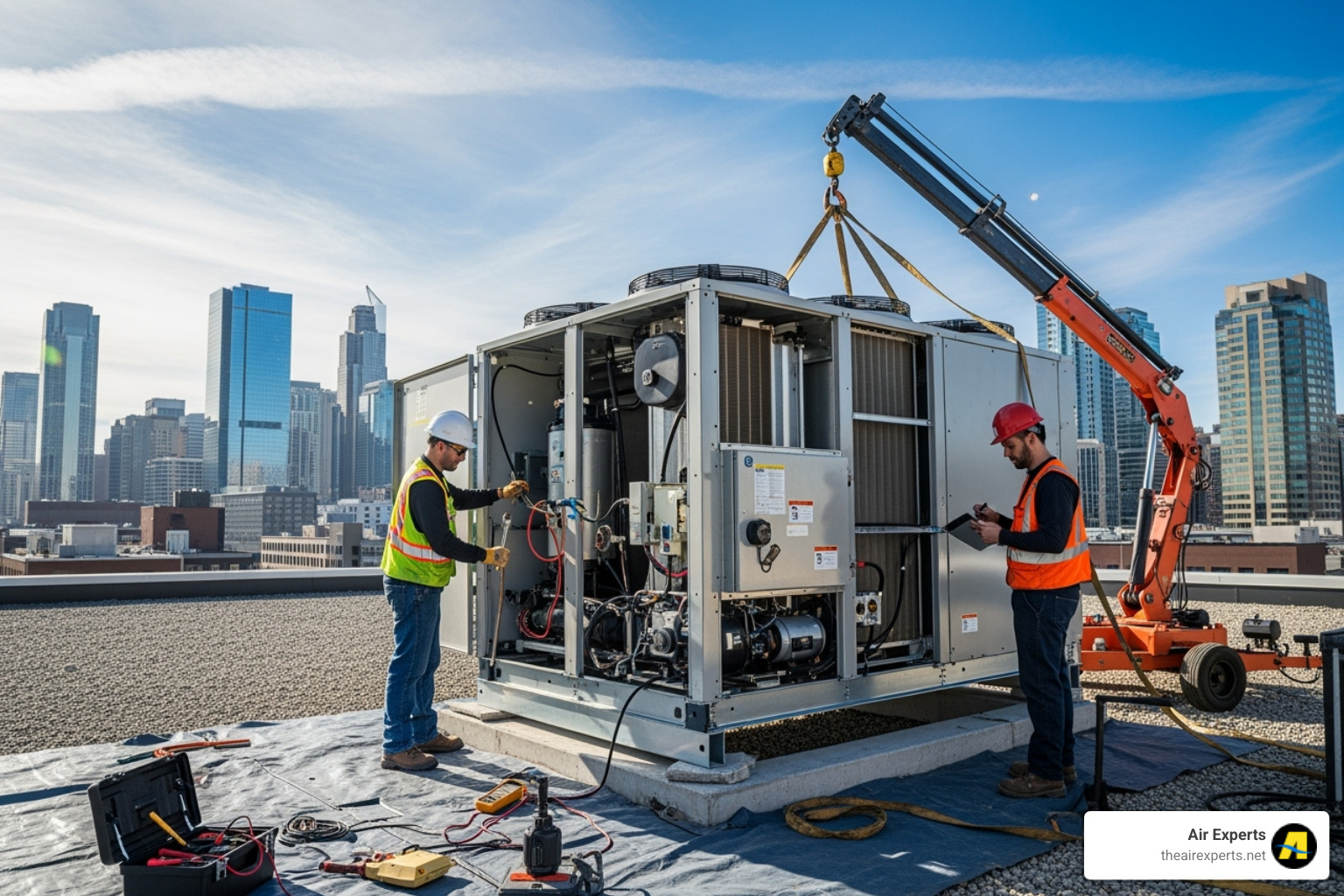
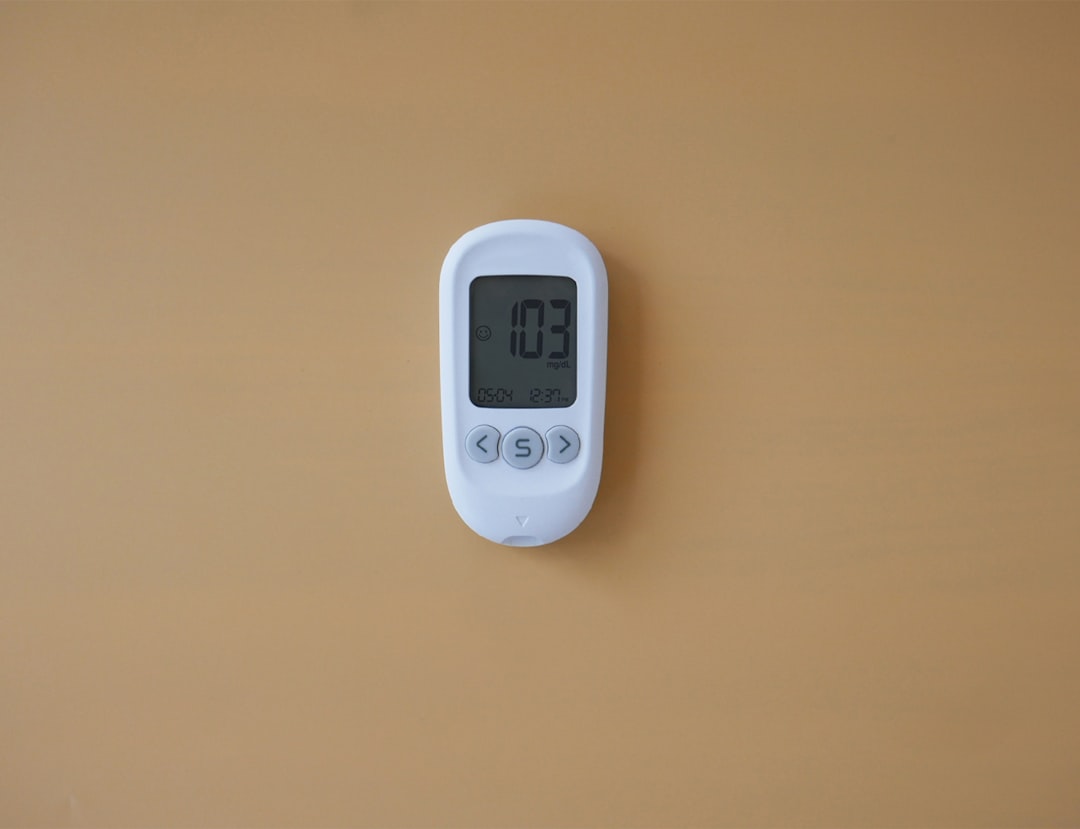
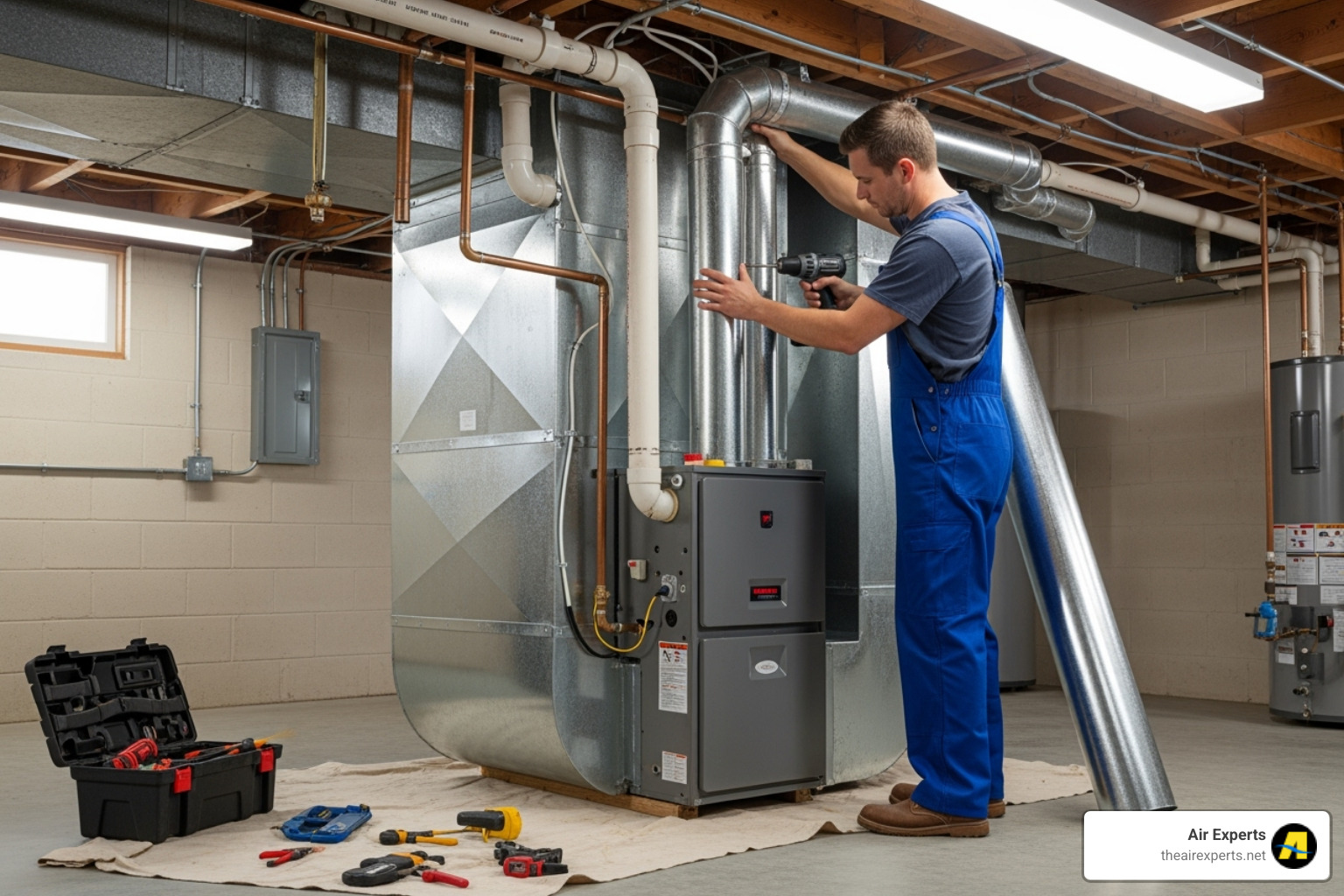
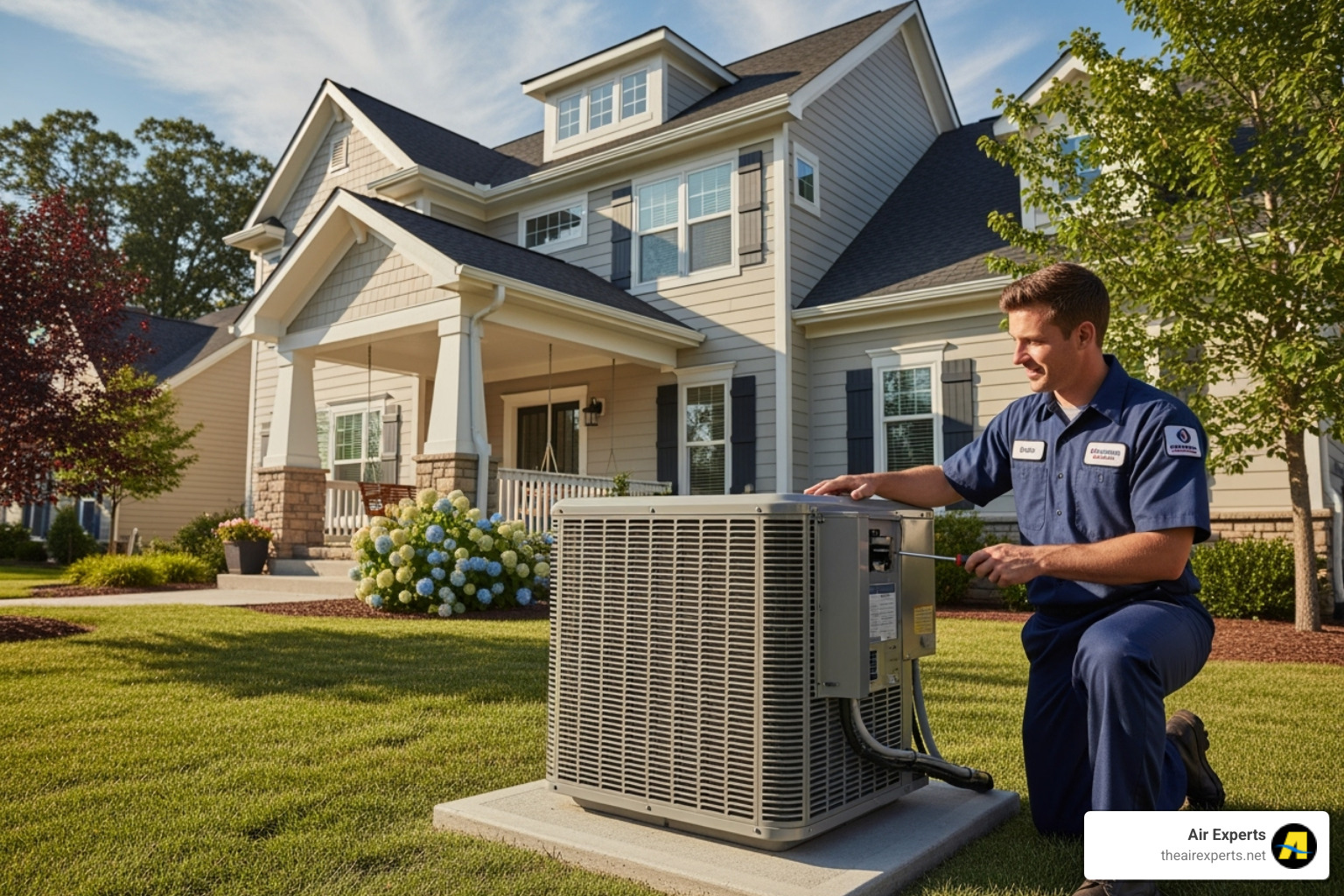
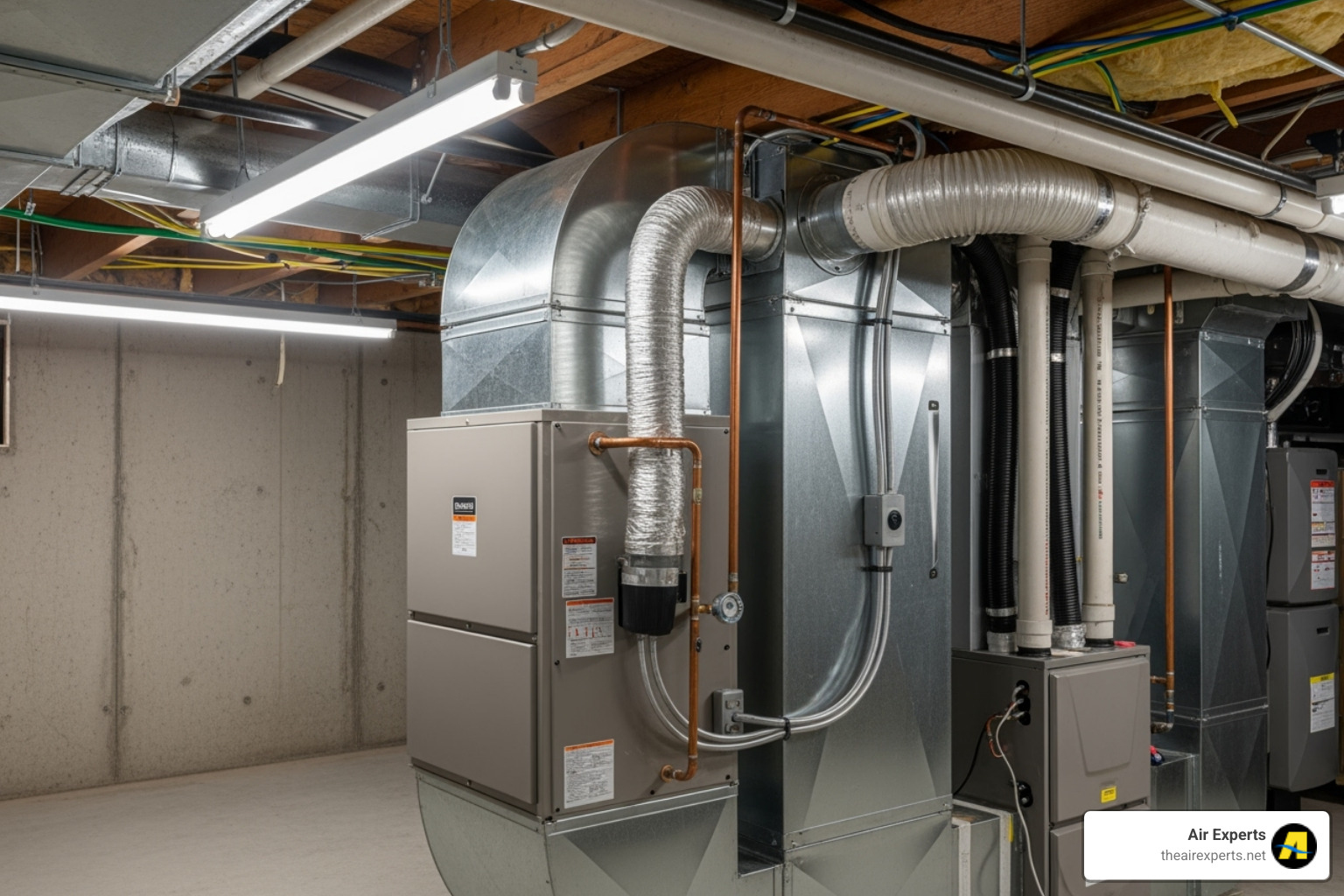
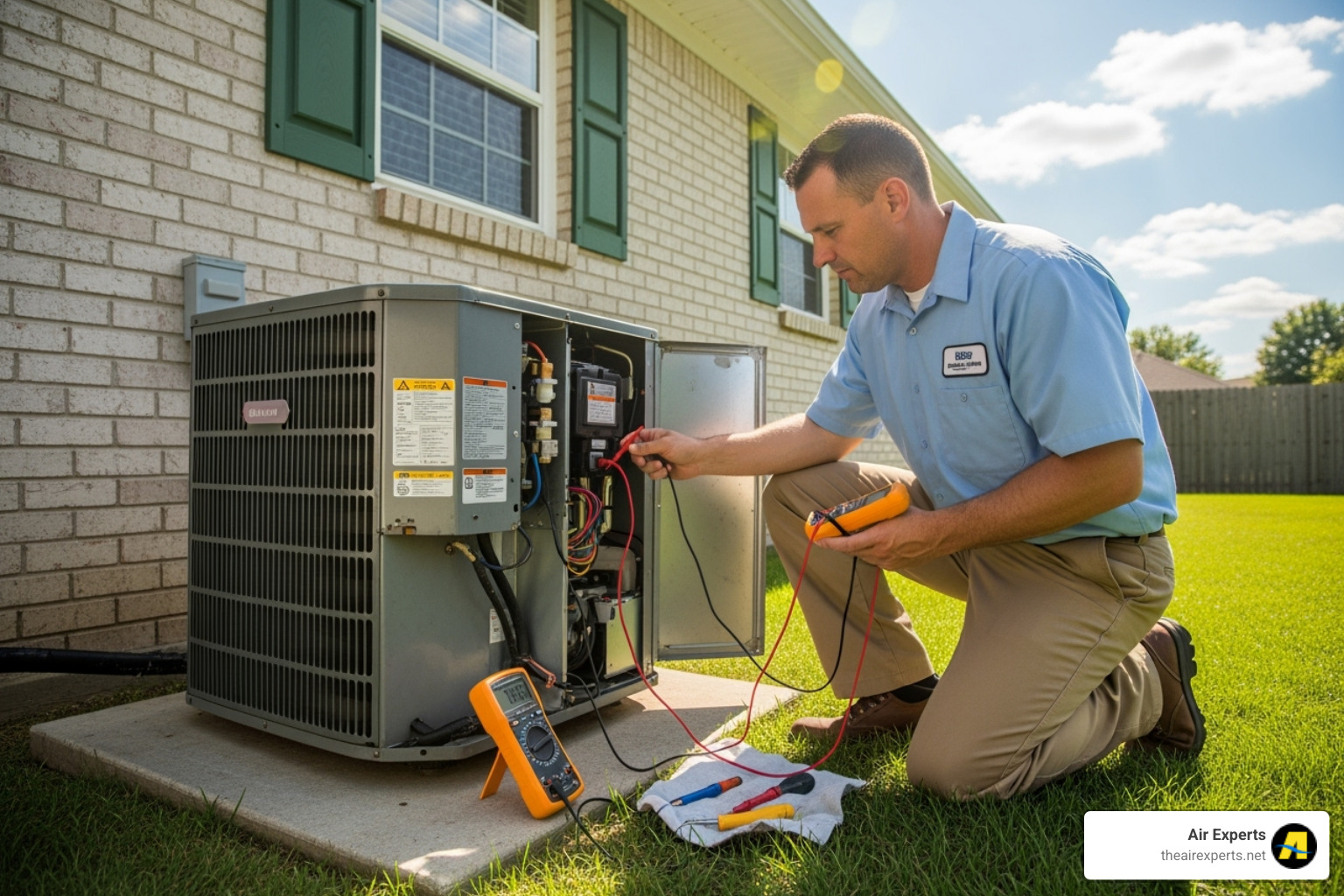
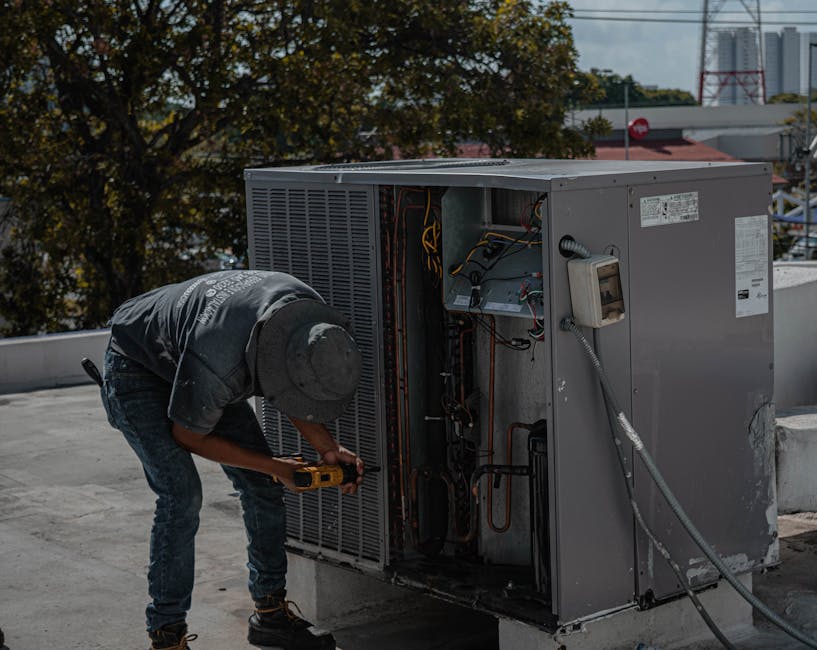
.svg)
.svg)




.svg)
.svg)
